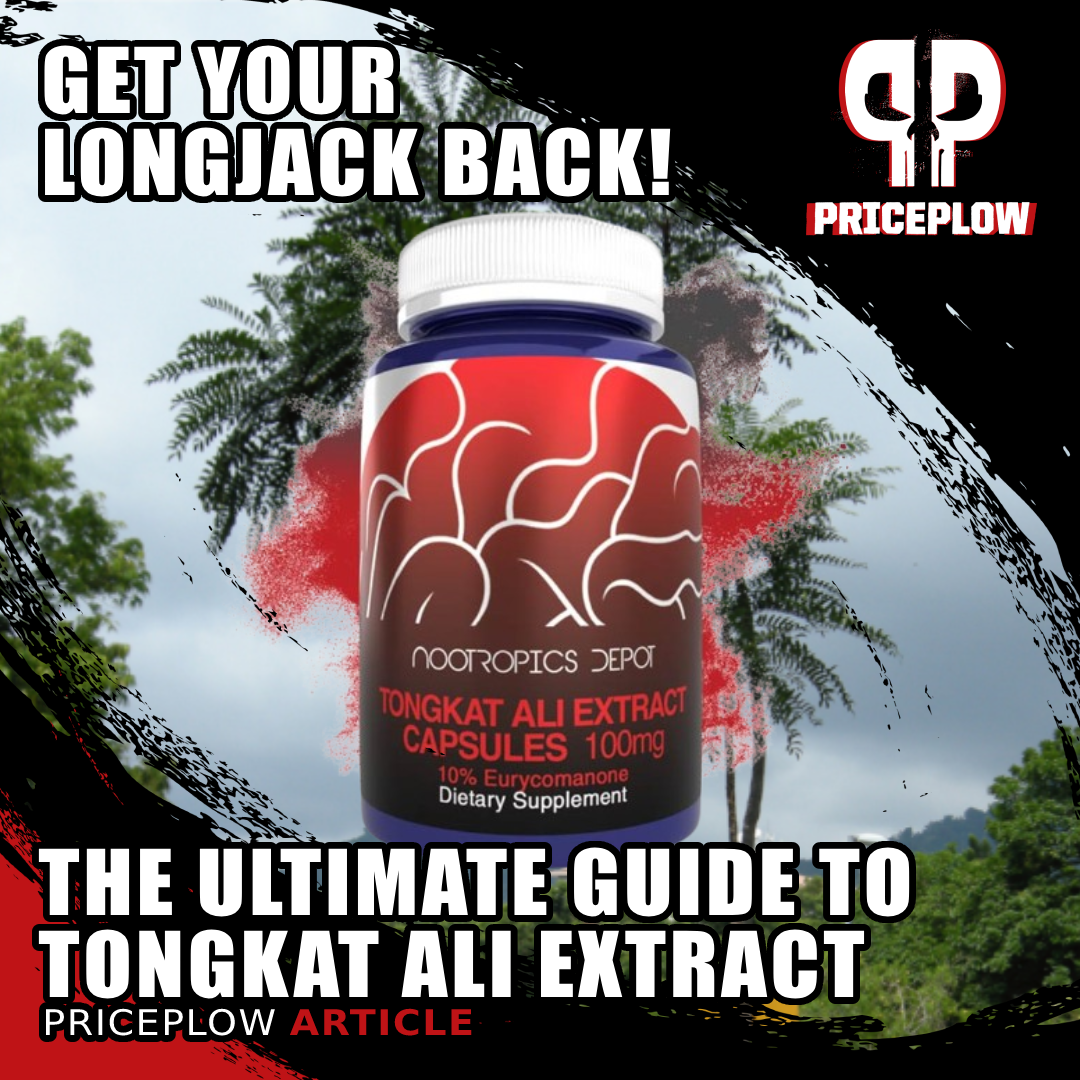
Tongkat Ali research shows impressive results for testosterone support, sexual health, stress reduction, and athletic performance. This comprehensive guide covers the science, proper dosing, and how to choose quality standardized extracts like Nootropics Depot's lab-tested options.
In the lush rainforests of Southeast Asia grows a slender, shrubby tree with a secret hidden beneath the soil: a root with remarkable properties that's been used for centuries as a traditional medicine. Eurycoma longifolia, commonly known as Tongkat Ali ("Ali's Walking Stick") or Longjack, emerged from traditional Malaysian medicine to become one of the most sought-after natural supplements for hormonal health and vitality.[1]
While local healers have long used Tongkat Ali for everything from fever and malaria to sexual dysfunction and fatigue, modern science has begun validating many of these traditional claims over the past 25 years -- especially testing its effects on testosterone levels, sexual health, and physical performance.[2]
Why Tongkat Ali Has Scientists Taking Notice
Tongkat has a growing body of clinical research supporting its benefits, with an abundance of peer-reviewed articles and trials exceeding what we see in most other supplemental herbs and botanicals. Recent scientific studies have demonstrated its ability to naturally support healthy testosterone levels in men, especially those with age-related hormonal decline.[3]
But Tongkat Ali isn't just about testosterone! Research shows it can help:
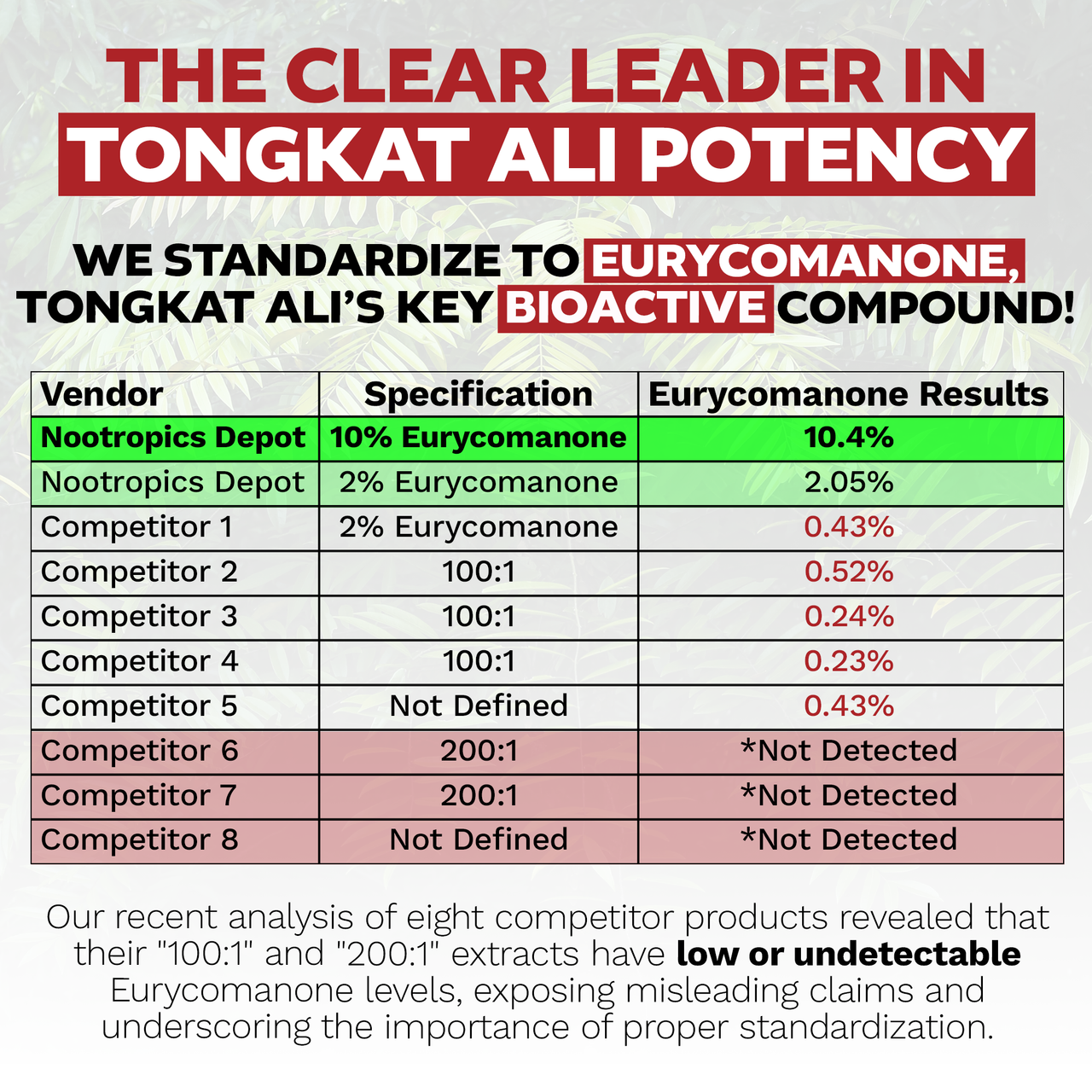
Independent testing exposes the massive gap between Nootropics Depot standardized extracts and competitor products, with some brands containing zero detectable eurycomanone despite premium pricing.
- Improve sexual function and libido
- Enhance muscle strength and athletic performance
- Reduce stress and cortisol levels
- Support healthy energy levels and mood
- Promote healthy body composition
- Strengthen bones
- Control blood sugar levels
- Improve immune system function
Throughout this comprehensive guide, we'll dive deep into the science behind each of these benefits, explore proper dosing strategies, and help you navigate the sometimes confusing world of Tongkat Ali supplements.
Nootropics Depot: Setting the Gold Standard for Tongkat Ali
As we'll also learn, when it comes to quality, not all Tongkat Ali supplements are created equal. Many products on the market contain substandard extracts or, worse, no actual tongkat at all! This is where Nootropics Depot has changed the game, offering rigorously tested Tongkat Ali extracts standardized to precise levels of bioactive compounds. They provide two professional-grade options:
- a 2% eurycomanone extract for those seeking a gentle introduction, and
- a more potent 10% eurycomanone extract for maximum benefits.
Each batch undergoes comprehensive third-party testing, ensuring you're getting exactly what's on the label -- pure, potent Tongkat Ali without fillers or contaminants.
Ready to explore how this incredible root might benefit you? Let's dig deeper into the fascinating world of Tongkat Ali and discover why it's quickly becoming a cornerstone supplement for those seeking natural hormonal support and enhanced vitality. But first, sign up for PricePlow's Tongkat Ali and Nootropics Depot alerts so you don't miss any new research on the topic:
Nootropics Depot Tongkat Ali Extract - 10% Eurycomanone – Deals and Price Drop Alerts
Get Price Alerts
No spam, no scams.
Disclosure: PricePlow relies on pricing from stores with which we have a business relationship. We work hard to keep pricing current, but you may find a better offer.
Posts are sponsored in part by the retailers and/or brands listed on this page.
This area is reserved for Team PricePlow's upcoming videos.
Subscribe to our channel and sign up for notifications so you catch it when it goes live!
What is Tongkat Ali?
Eurycoma longifolia Jack belongs to the Simaroubaceae family, a group of tropical plants often characterized by their bitter compounds. It's a tall, slender, evergreen shrub-tree that can reach heights of 10-15 meters (33-49 feet) when fully mature.[4] The plant grows relatively slowly, sometimes requiring two decades or more to reach full maturity, and prefers the sandy soils of lowland forests.
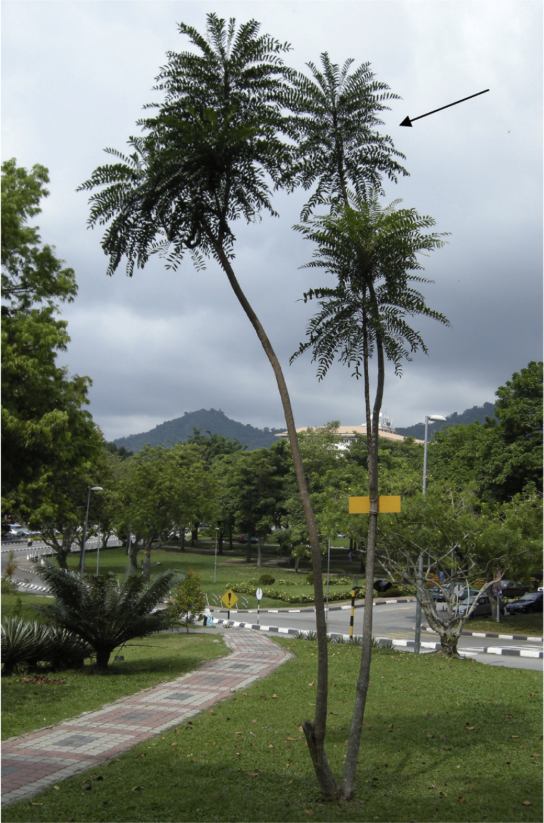
Mature Eurycoma longifolia trees reach impressive heights of 10-15 meters in their native Southeast Asian environment, requiring decades to develop the potent root systems harvested for supplements.[4]
Native to Southeast Asia, Eurycoma longifolia is found primarily in Malaysia, Indonesia, Thailand, Vietnam, and several other countries in the region. The plant thrives in tropical rainforests, where it receives adequate shade and water. Its natural habitat consists of jungle slopes with well-drained soil, an environment that contributes to the development of its potent bioactive compounds.[1]
A Plant of Many Names
This herb has accumulated various names across different cultures and regions, so you may any of the following, although the first two are most common:
- Tongkat Ali (Malaysia and Singapore) - literally meaning "Ali's Walking Stick", referring to its long, twisted roots and perceived ability to support male vitality
- Longjack - a common Western market name
- Malaysian Ginseng - though not botanically related to true ginseng, this nickname reflects its adaptogenic properties and energizing effects
- Pasak Bumi (Indonesia) - translating to "Earth Nail" or "Earth Stake"
- Cay Ba Binh (Vietnam) and Tho Nan (Laotian)
The nickname "Malaysian Ginseng" is telling (even though it's not properly classified), since it positions tongkat as the Southeast Asian answer to the renowned Chinese and Korean adaptogens, with modern research supporting such claims.[5]
Ancient Wisdom: Traditional Uses in Southeast Asia
For centuries, tongkat has occupied a central place in the traditional medicine systems of Malaysia, Indonesia, and other Southeast Asian countries. The root has been the most prized part of the plant, traditionally prepared as a decoction (boiled extract) for various therapeutic applications.
In Malaysian folk medicine, Tongkat Ali was primarily used for:[1]
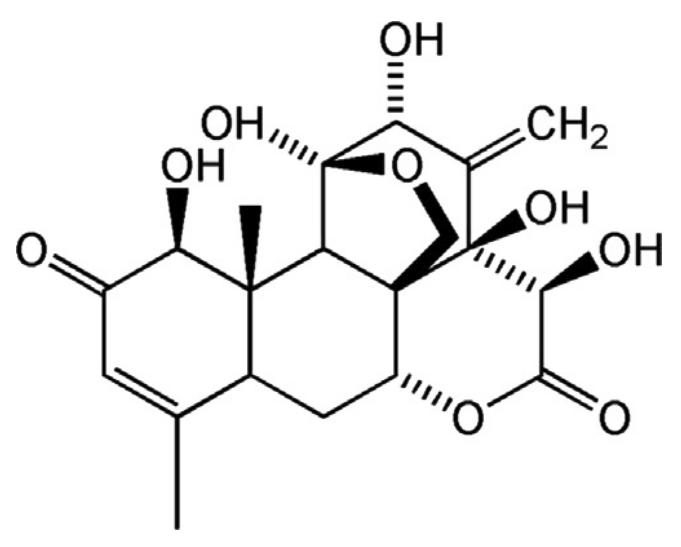
The complex molecular framework of eurycomanone shows multiple hydroxyl groups and ring structures that contribute to its testosterone-supporting bioactivity in the body.[6]
- Enhancing male sexual function and treating erectile dysfunction
- Increasing energy and reducing fatigue
- Relieving fever (antimalarial properties)
- Treating various infections
- Reducing anxiety and stress
- Supporting post-partum recovery in women
- Managing diabetes and high blood pressure
These traditional applications weren't limited to the root, either -- other parts of the plant saw medicinal use as well. The leaves were prepared in decoctions for washing itches, while the bark was employed as an anti-parasitic. The fruits found use in treating dysentery.[1]
Beyond its medicinal applications, Tongkat Ali was valued as a general tonic that promoted vitality and longevity, earning it a special place in the cultural and medical traditions of the region.
Sustainability Challenges and Conservation Efforts
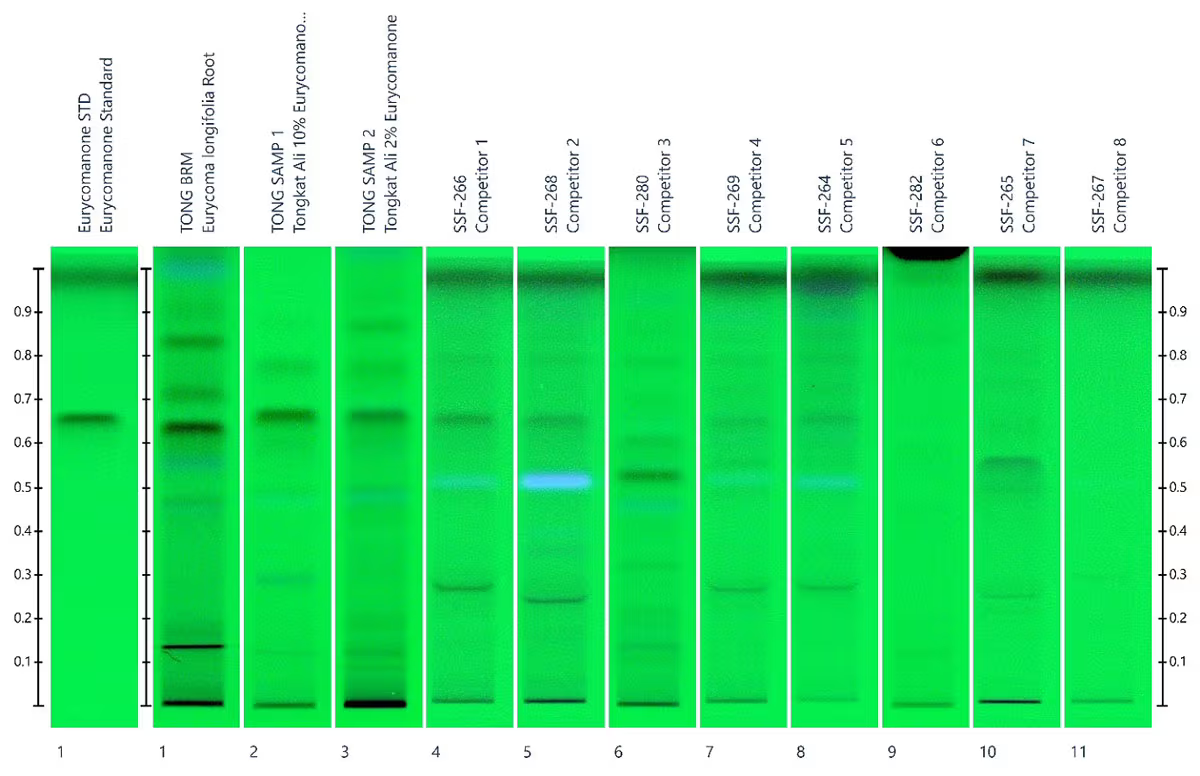
Chromatography using HPTLC testing at independent labs shows how various Tongkat Ali extracts separate into distinct chemical fingerprints, with dark spots indicating where active compounds settle during testing.
The growing global demand for Tongkat Ali presents significant sustainability challenges. Several factors contribute to these concerns.
Tongkat Ali's slow growth rate (~25 years to reach full maturity) makes rapid replenishment impossible. The traditional practice of harvesting entire plants for their roots is especially destructive to wild populations. In response to these challenges, several conservation and sustainability initiatives have emerged, including cultivation programs and regulatory protection. These efforts help ensure that the benefits of Tongkat Ali remain available for future generations while preserving the plant's role in its native ecosystems.
With the background covered, it's time to get into the science inside:
The Science Behind Tongkat Ali
If you're looking for a supplement that delivers powerful results, it helps to understand why it works. Tongkat ali isn't just backed by traditional use, it's supported by modern scientific research that reveals exactly how it affects your body's hormonal systems and physiological processes.
Key Bioactive Compounds
Eurycoma longifolia contains a variety of bioactive compounds, but several stand for its beneficial effects:
-
Quassinoids
Quassinoids are bitter-tasting compounds that form the primary active constituents in the plant. These naturally occurring compounds are classified as nortriterpenoids and are responsible for many of the plant's biological activities.[1]
The most important quassinoids in Tongkat Ali include:
- Eurycomanone: The most studied and highest concentrated quassinoid in quality root extracts (often used as a marker for standardization)
- 13α,21-Dihydroeurycomanone
- 13α(21)-Epoxyeurycomanone
- Eurycomanol
- Eurycomanol-2-O-β-D-glucopyranoside
Eurycomanone is especially significant because it directly influences testosterone production. Research demonstrates that this compound enhances testosterone steroidogenesis by inhibiting the aromatase enzyme that converts testosterone to estrogen.[6] We'll get into this in more detail below.
-
Alkaloids
Tongkat ali also has many alkaloids that contribute to its bioactivity:
- Canthin-6-one alkaloids: Including 9-methoxycanthin-6-one and 9-hydroxycanthin-6-one
- β-Carboline alkaloids: Including β-carboline-1-propionic acid and 7-methoxy-β-carboline-1-propionic acid
These alkaloids show various biological activities including antioxidant and anti-inflammatory properties.[1]
-
Other Compounds
Tongkat Ali also contains:
- Squalene derivatives
- Biphenyl neolignan
- Triterpenes
- Steroids
- Saponins
Each of these compound classes may contribute to the overall biological activity of the plant extract.
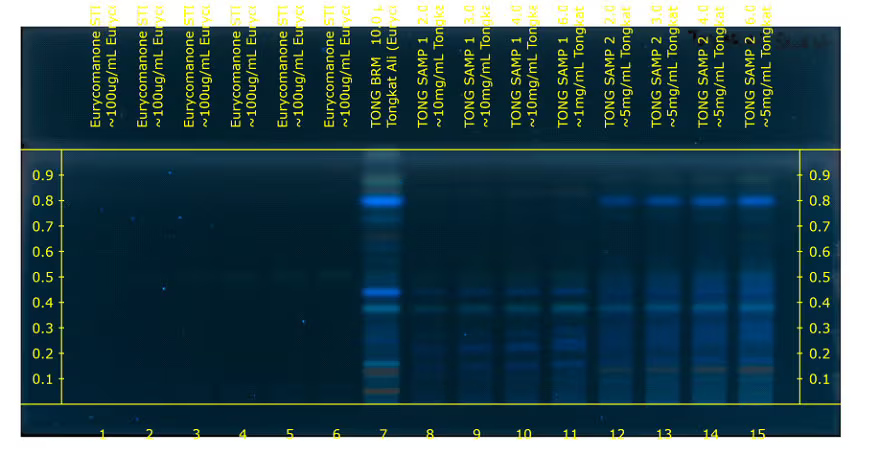
Multiple dilutions of 2% and 10% eurycomanone extracts demonstrate how different standardization levels produce distinct chemical profiles, explaining why extract strength matters for effectiveness. Data based upon HPTLC testing at independent labs.
How Extraction Methods Affect Potency
The method used to extract compounds from Tongkat Ali roots dramatically impacts both potency and bioactivity. Not all Tongkat Ali products are created equal... the extraction process makes all the difference.
-
Traditional vs. Modern Extraction
Traditionally, Tongkat Ali was prepared by boiling the roots in water to create a decoction. While effective for some compounds, this basic method fails to extract all bioactive components optimally.
Modern extraction techniques have significantly improved both yield and quality:
- Water extraction: Extracts water-soluble compounds including some quassinoids and peptides
- Alcohol extraction: Pulls out more fat-soluble compounds that water alone cannot extract
- Standardized extraction: Uses precise solvent ratios and controlled conditions to ensure consistent levels of key compounds
-
The Critical Role of Standardization
Scientific research has shown that the standardization of Tongkat Ali is essential for reliable effects. Studies typically use extracts standardized to specific levels of eurycomanone, the primary marker compound.
Teh et al. developed a validated liquid chromatography-mass spectrometric method for simultaneously analyzing five key quassinoid markers to standardize manufactured batches of Eurycoma longifolia extract.[7]
Their analysis found that quality extracts contained:
- 5.65-9.95% eurycomanone
- 5.21-19.75% eurycomanol
- 7.59-19.95% eurycomanol-2-O-β-D-glucopyranoside
- 0.78-3.90% 13α(21)-epoxyeurycomanone
- 0.47-1.76% 13,21-dihydroeurycomanone
-
Extraction Ratio Matters
The extraction ratio (sometimes expressed as a concentration ratio like 100:1 or 200:1) indicates how much raw material was used to produce the extract. Higher ratios generally mean more concentrated products, but the standardization of specific compounds is a more reliable indicator of quality.
However, if you just see "100:1" on a label, but it doesn't state what constituent it's standardized for, you still don't have much information about an extract:
Standardization Parameters to Look For
When evaluating Tongkat Ali supplements, specific standardization parameters provide the best indication of quality and potency.
-
Eurycomanone Content
Eurycomanone is the primary marker compound used for standardization. Quality supplements typically specify the percentage:
- Basic extracts: Often standardized from 0 to 2% eurycomanone
- Premium extracts: May be standardized to 10% eurycomanone or higher
Research suggests that the eurycomanone content directly correlates with testosterone-boosting effects, making this the most important standardization parameter.[6]
-
Glycopeptide Content
Some products may also standardize for glycopeptide content, which contributes to the herb's pro-fertility effects.
-
Total Quassinoid Profile
Other products may provide information on the total quassinoid profile rather than just eurycomanone. A balanced profile of multiple quassinoids may provide synergistic effects. The challenge is that the more a brand claims, the more they have to test for and prove when pressed by authorities. This is why it's generally simpler to standardize to the most powerful constituent.
-
Brand Standardization Examples
The most trusted brand in the space, Nootropics Depot, offers their Tongkat Ali Extract products in two different standardizations:
- 2% eurycomanone standardization (more moderate potency)
- 10% eurycomanone standardization (higher potency)
This allows users to select the appropriate potency for their specific needs. A powder supplement is also available for precise dosing with a micro scale.
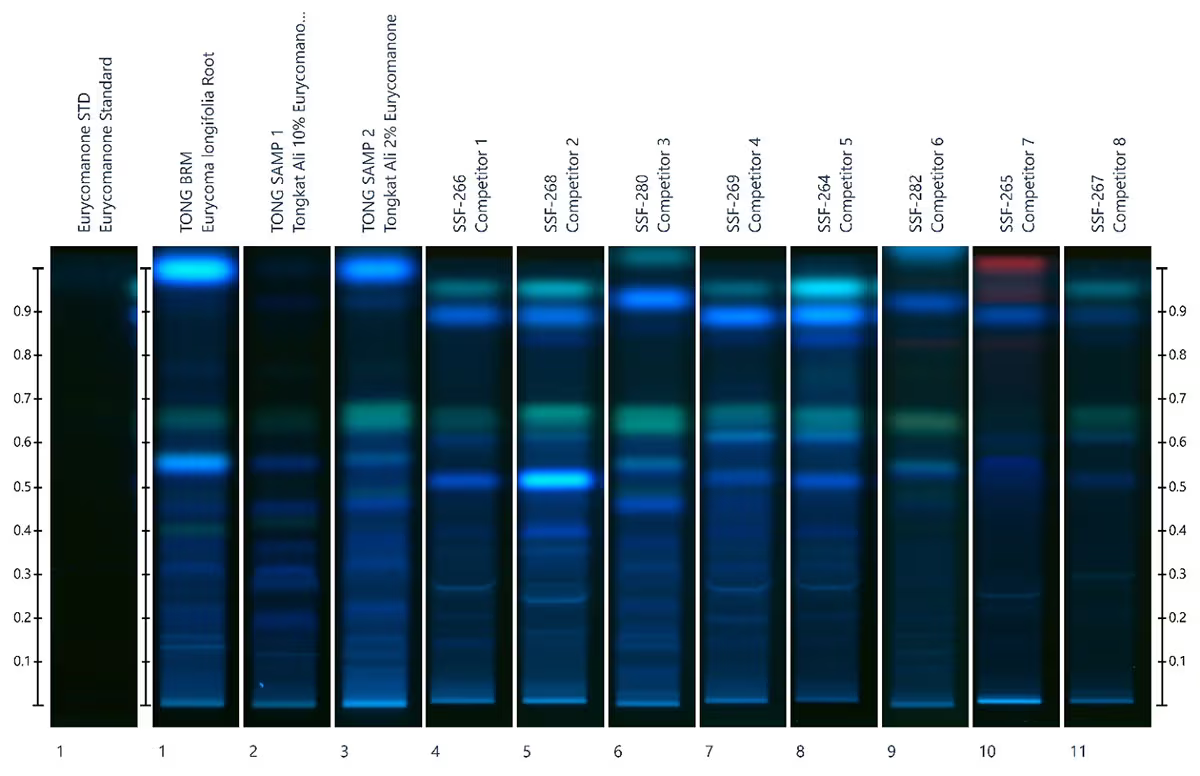
Under ultraviolet light, the same samples reveal additional compounds that fluoresce blue, helping researchers identify specific bioactive molecules not visible in standard testing. This is based upon HPTLC testing at independent labs.
Research Timeline: From Traditional Claims to Modern Studies
The scientific journey of Tongkat Ali from traditional medicine to evidence-based supplement provides fascinating insights into its mechanisms and benefits.
-
Traditional Use (Pre-1990s)
For centuries, Tongkat Ali was used in traditional Southeast Asian medicine for:[1]
- Enhancing male fertility and libido
- Treating fevers (particularly malaria)
- Relieving various ailments including ulcers and high blood pressure
These traditional applications guided early scientific investigation of the plant, but it wasn't until the epic decade of the 1990s when things started to get interesting.
-
Early Scientific Exploration (1990s-2000s)
The 1990s saw the first serious scientific investigations into Tongkat Ali:
Scientists create this reference standard by plotting known eurycomanone concentrations against detection signals, allowing precise quantification of active compounds in commercial products.
- 1991: Kardono et al. isolated and identified cytotoxic and antimalarial constituents from Tongkat Ali roots.[8]
- 1998: Ang and Sim published the first modern studies on Tongkat Ali's effects on sexual behavior in rats, providing scientific support for its traditional aphrodisiac claims.[9]
-
Mechanism Studies (2000s-2010s)
The 2000s brought deeper investigation into how the herb's components really work:
Plasma concentration curves reveal how eurycomanone and related compounds are absorbed and cleared from the bloodstream after both injection and oral administration.[10]
- 2003-2004: Pilot studies were carried out testing ergogenic and antihyperglycaemic effects.[11][12]
- 2005-2010: Additional studies identified the specific compounds responsible for testosterone-boosting effects and elucidated their mechanisms of action.
- 2009: Researchers demonstrated that Tongkat Ali extracts enhanced male fertility parameters in animal models, showing improvements in sperm quality.[13]
- 2011: Low et al. conducted important pharmacokinetic studies showing how quassinoids are absorbed and metabolized in the body.[10]
-
Human Clinical Studies (2010s-Present)
The most powerful research has focused on human clinical trials:
- 2012: Tambi et al. demonstrated that standardized Tongkat Ali extract increased serum testosterone in men with late-onset hypogonadism.[14]
- 2013: A significant study by Low et al. revealed that eurycomanone increases testosterone by inhibiting the aromatase enzyme that converts testosterone to estrogen.[6]
- 2014: Henkel et al. showed that Tongkat Ali supplementation improved testosterone levels and muscle strength in both men and women.[15]
- 2022: A systematic review and meta-analysis by Leisegang et al. confirmed that Tongkat Ali significantly increases serum testosterone in men, with the strongest effects in those with low testosterone levels.[3]
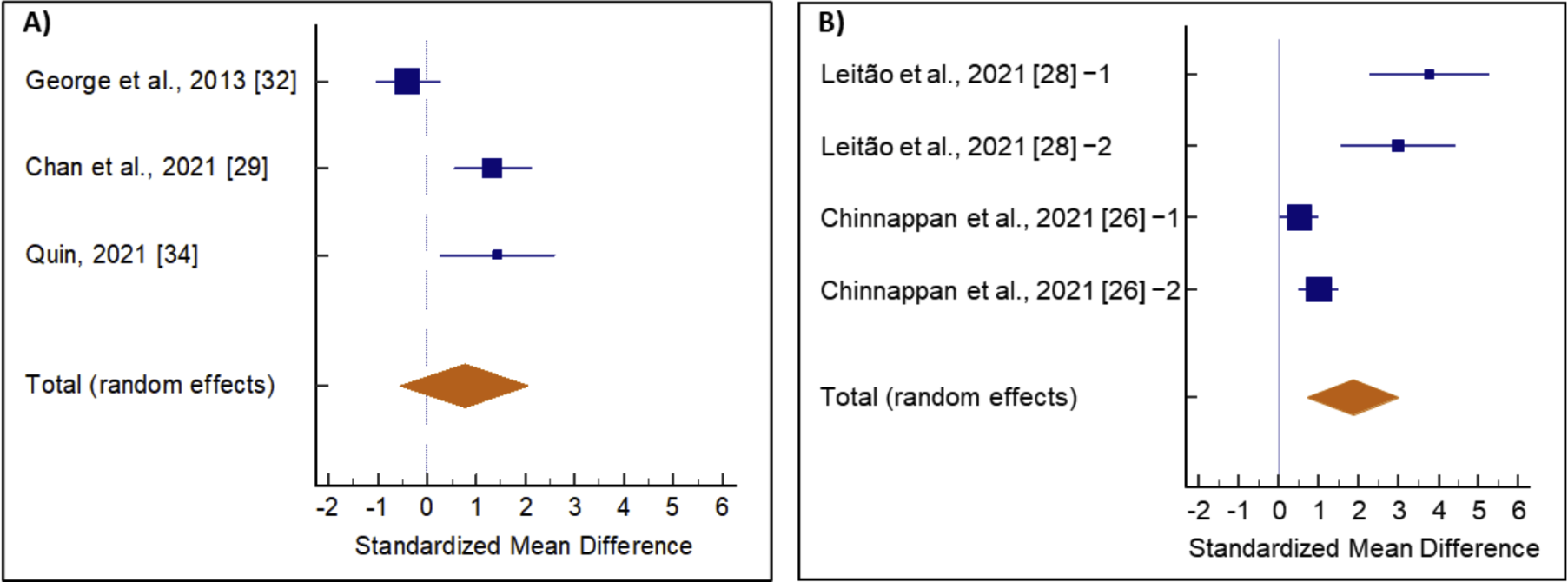
Research reveals stronger benefits in men with low testosterone (Panel B) compared to healthy men (Panel A), suggesting the herb works best for those who need it most.[3]
This progression from traditional knowledge to rigorous clinical trials has established Tongkat Ali as one of the few herbal supplements with substantial scientific support for its testosterone-boosting and pro-fertility effects.
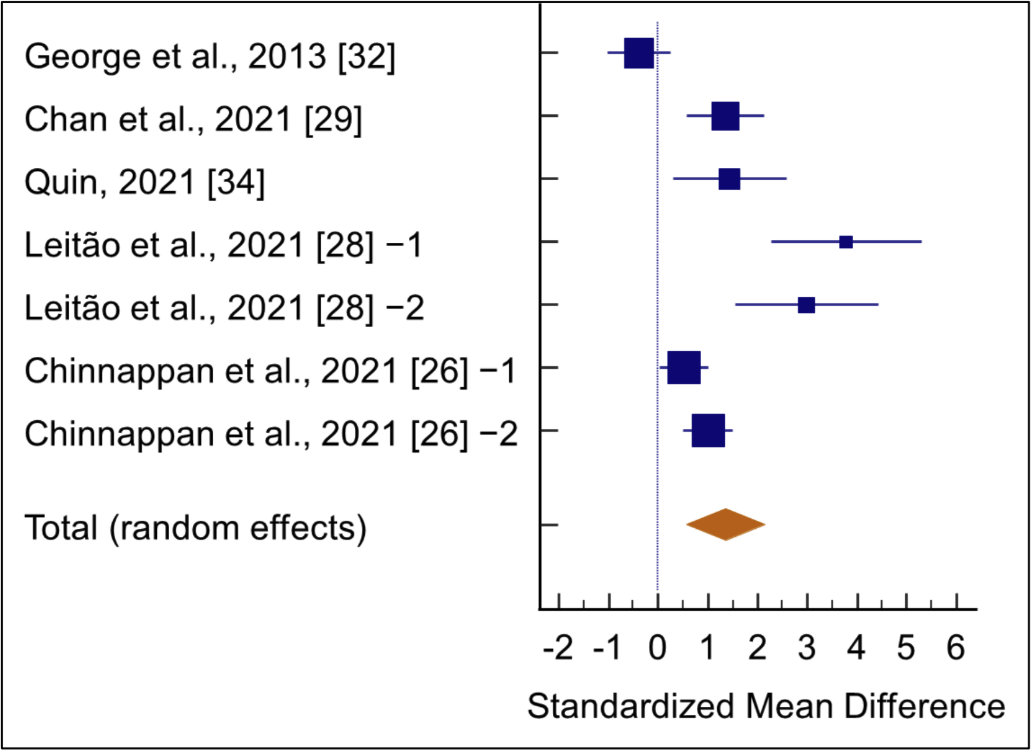
Combined data from seven clinical trials demonstrates that supplementation reliably increases testosterone levels, with the diamond representing the overall positive effect.[3]
Key Mechanisms of Action
Eurycomanone, the major quassinoid in Tongkat Ali, has been shown to increase testosterone production through two primary mechanisms:
- Aromatase Inhibition: Eurycomanone inhibits the aromatase enzyme that converts testosterone to estrogen, thereby preserving testosterone levels.[6]
- Phosphodiesterase Inhibition: At higher concentrations, eurycomanone may also inhibit phosphodiesterase, thereby increasing cyclic AMP levels in Leydig cells, stimulating testosterone production.[6]
In greater detail:
-
Eurypeptides and Testosterone Production
The root extract contains bioactive peptides called "eurypeptides" that play a crucial role in enhancing testosterone biosynthesis. These compounds activate the CYP17 enzyme (17α-hydroxylase/17,20-lyase), which enhances the metabolism of pregnenolone and 17-OH-pregnenolone to yield more DHEA (dehydroepiandrosterone).[16]
This cascade continues as progesterone and 17-OH-progesterone are further metabolized to 4-androstenedione and ultimately to testosterone.[1]
-
Aromatase Inhibition
One of Tongkat Ali's key bioactive compounds, eurycomanone, has been shown to increase testosterone production by inhibiting aromatase, the enzyme that converts testosterone to estrogen.[6] By decreasing the conversion of testosterone to estrogen, more testosterone remains available in the body.
-
Phosphodiesterase Inhibition
At higher concentrations, eurycomanone may also inhibit phosphodiesterase, which can contribute to increased testosterone levels.[6] This mechanism may help explain why Tongkat Ali has both testosterone-boosting and pro-erectile effects.
-
Modulation of the HPG Axis
Tongkat Ali appears to influence the hypothalamic-pituitary-gonadal (HPG) axis, with research showing that the extract can elevate luteinizing hormone (LH) and follicle-stimulating hormone (FSH). These gonadotropins directly stimulate testosterone production in the Leydig cells of the testes.[6]
These mechanisms are supported by both in vitro studies and animal research, and help explain the consistent testosterone-boosting effects observed in human clinical trials.
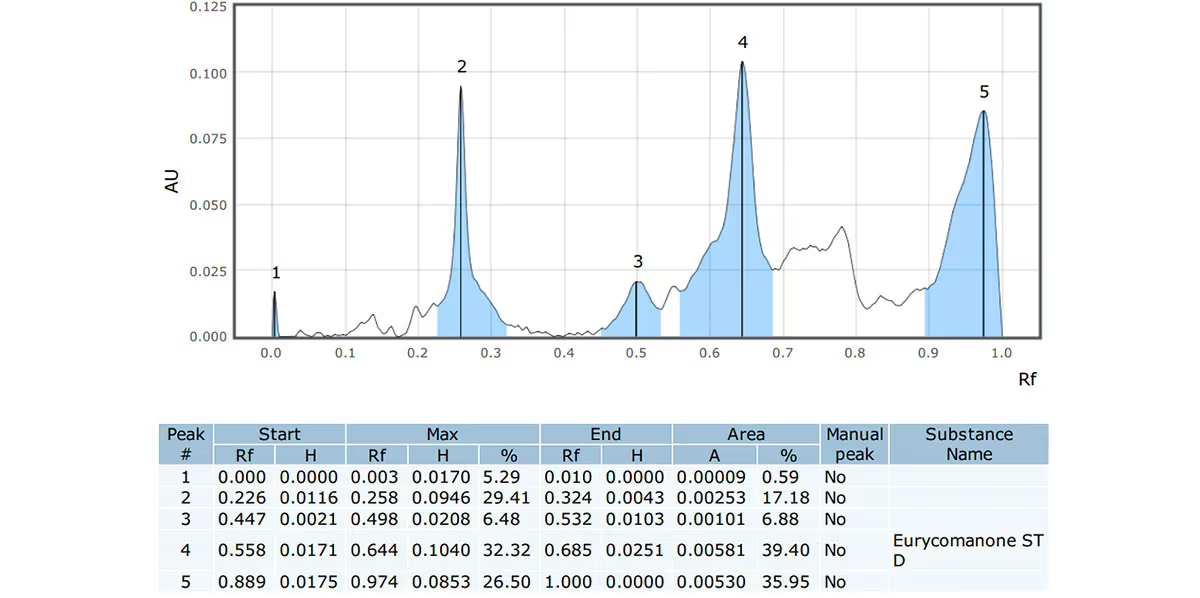
Peak number 4 matches the eurycomanone reference standard, proving the compound presence and allowing researchers to calculate exact concentrations in supplement batches.
The science shows that Tongkat Ali isn't just another overhyped supplement... it's a thoroughly-researched botanical with specific, well-understood mechanisms of action that support its use for increasing testosterone, improving fertility, and enhancing physical performance.
This brings us to separate sections on each major benefit, starting, of course, with testosterone:
Tongkat Ali's Testosterone Benefits
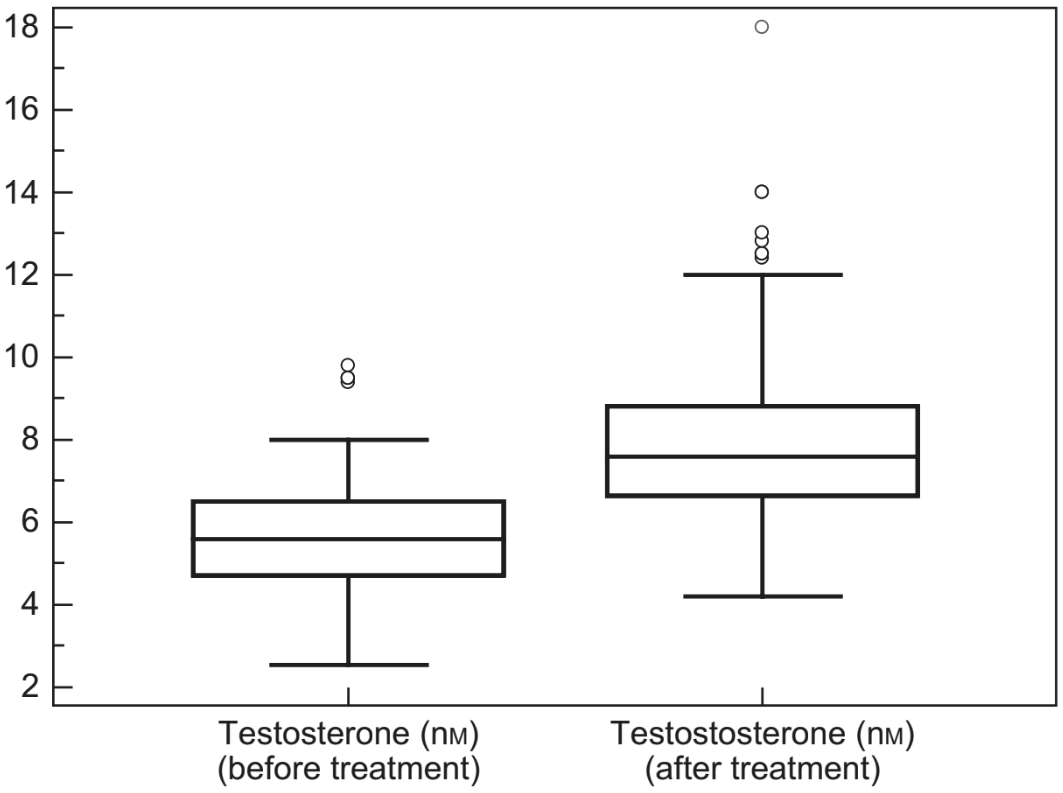
Men with late-onset hypogonadism showed substantial testosterone increases after one month of supplementation, with median levels rising from around 5.5 to 7.5 nanomoles.[14]
Tongkat ali earned its early reputation as "Malaysian Ginseng" largely due to its significant impact on male hormonal health. Its testosterone-enhancing effects are backed by a solid and growing body of scientific research, including multiple human clinical trials. The mechanisms of action are described above, so let's get right into the research.
Human Clinical Studies on Testosterone Levels
The testosterone-enhancing effects of Tongkat Ali have been demonstrated in multiple human clinical trials:
-
Effects in Men with Hypogonadism
A landmark study by Tambi et al. (2012) examined the effects of a standardized water-soluble extract of Tongkat Ali (200mg/day) in men diagnosed with late-onset hypogonadism. After one month of supplementation, the percentage of men with normal testosterone levels increased from just 35.5% to an impressive 90.8%. Even more notable was the improvement in Aging Males' Symptoms (AMS) scores, with the percentage of men reporting no complaints rising from 10.5% at baseline to 71.1% after treatment.[14]
-
Effects in Healthy Men
The testosterone-boosting effects aren't limited to men with testosterone deficiency. In a randomized, double-blind, placebo-controlled study with healthy men (aged 30-55 years), 300mg of Tongkat Ali extract daily for 12 weeks resulted in significant improvements in erectile function and sexual libido compared to placebo.[17]
Another study by Henkel et al. (2014) demonstrated that 400mg of Tongkat Ali extract daily for 5 weeks significantly increased total testosterone levels in both elderly men and women. In addition to testosterone increases, participants also experienced improvements in muscular strength.[15]
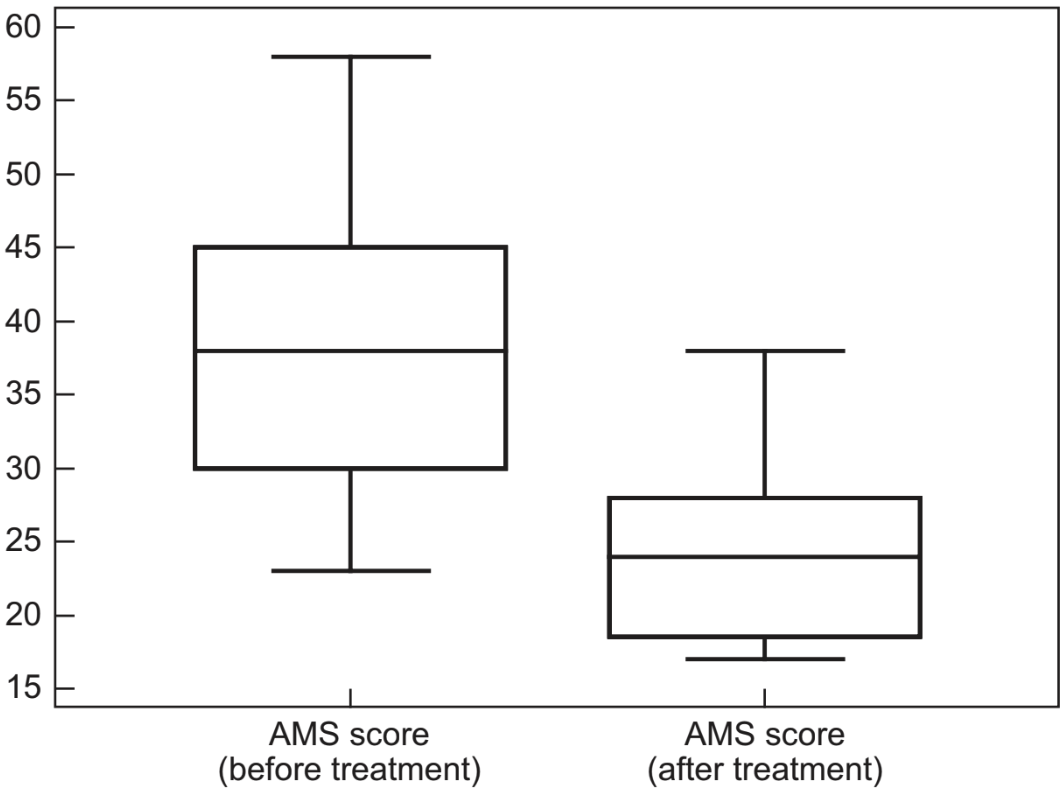
Aging Male Symptom scores dropped dramatically after treatment, indicating meaningful improvements in energy, mood, and overall well-being in men with hormone deficiency.[14]
Effects on Free vs. Bound Testosterone
Understanding the relationship between total testosterone, free testosterone, and sex hormone-binding globulin (SHBG) is crucial when evaluating Tongkat Ali's benefits.
-
SHBG Reduction
Most testosterone in the bloodstream is bound to SHBG, rendering it biologically inactive. One of Tongkat Ali's unique benefits is its ability to potentially decrease SHBG levels, thereby increasing the percentage of free, bioavailable testosterone.[5]
In a study by Henkel et al., treatment with 400mg of Tongkat Ali extract daily led to a decrease in SHBG concentration over a 5-week period.[16] This reduction in SHBG helps explain why the herb may increase free testosterone even when total testosterone changes are modest.
-
Clinical Evidence for Free Testosterone Increases
Multiple studies have reported increases in free testosterone following Tongkat Ali supplementation. In the Ismail et al. study, subjects taking the herbal extract showed improved sexual libido scores and higher free testosterone levels compared to the placebo group.[17]
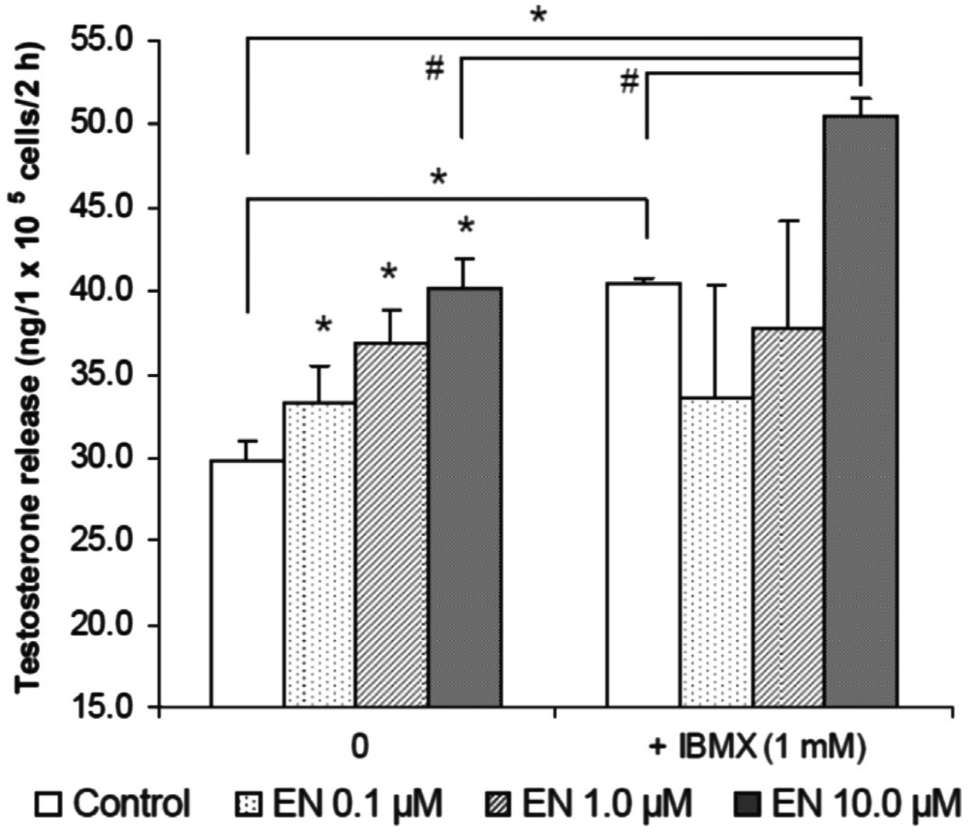
Testicular cells treated with increasing concentrations of eurycomanone show dose-dependent increases in testosterone release, with the highest concentrations producing the strongest effects.[6]
Adaptogenic Properties for Hormonal Balance
Beyond its direct testosterone-boosting effects, Tongkat Ali exhibits adaptogenic properties that contribute to overall hormonal balance (hence the "Malaysian Ginseng" moniker):
-
Stress Hormone Reduction
Participants showed a 16% decrease in salivary cortisol levels, indicating the herb's ability to combat chronic stress and support hormonal balance.[5]
Chronic stress and elevated cortisol levels can suppress testosterone production. Tongkat ali has been shown to reduce cortisol levels, which may indirectly support testosterone production. In a study by Talbott et al., moderately stressed subjects who took Tongkat Ali extract experienced a 16% reduction in cortisol exposure and a corresponding 37% increase in testosterone levels.[5]
Salivary testosterone measurements reveal substantial increases following supplementation, providing concrete evidence of hormone-supporting capabilities in real-world conditions.[5]
This improved cortisol:testosterone ratio (a 36% reduction) suggests that Tongkat Ali helps the body maintain hormonal balance even during periods of stress.
-
Testosterone "Maintenance" Rather Than Artificial Boosting
Unlike synthetic androgens or testosterone replacement therapy, the herb appears to work as a testosterone "maintainer" or "restorer" by supporting the body's natural production pathways and optimizing the availability of existing testosterone.[1]
This may explain why its effects are so pronounced in individuals with suboptimal testosterone levels (such as older men, stressed individuals, or those with hypogonadism) but don't typically result in supraphysiological testosterone concentrations.
-
Hormonal Benefits During Diet and Exercise Stress
Caloric restriction and intense exercise can temporarily suppress testosterone production. Research suggests that Tongkat Ali may help maintain normal testosterone levels in these situations, potentially preventing the familiar "plateau" that many dieters hit when weight loss slows due to hormonal adaptations.[5]
For athletes, this means the herb might help maintain optimal testosterone:cortisol ratios during training, potentially improving recovery and preventing symptoms of overtraining syndrome.
In conclusion, Tongkat Ali offers a multi-faceted approach to supporting healthy testosterone levels through both direct mechanisms (increased production, decreased conversion to estrogen, SHBG reduction) and indirect pathways (stress hormone management, adaptogenic support). These effects are especially exciting for aging men experiencing testosterone decline, physically active individuals, and those under chronic stress, and they make Tongkat Ali one of the most promising natural testosterone support supplements available today.
Sexual Health Benefits
When searching for a natural boost to sexual health, few botanicals have the proven track record and traditional backing as this one. This plant can support various aspects of male sexual health:
-
Libido and Sexual Function Improvements: From Ancient Remedy to Modern Solution
As discussed above, Tongkat Ali has been celebrated as a potent aphrodisiac throughout Southeast Asia for centuries.[1] Clinical research now validates these applications, showing that the herb can measurably improve sexual desire, performance, and satisfaction.
A 12-week randomized controlled trial by Ismail and colleagues (2012) demonstrated that 300mg of a standardized water extract of Tongkat Ali significantly improved sexual libido in men compared to placebo. Participants receiving the treatment showed impressive improvements in sexual satisfaction scores as well as sexual performance parameters.[17]
In this study, specific improvements were noted in:
- Sexual libido scores (14% increase by week 12)
- Sexual satisfaction (7.2% improvement)
- Sexual relationship satisfaction
Another well-designed study by Udani et al. (2014) showed similarly promising results. This 12-week randomized, double-blind, placebo-controlled trial found that supplementation with a Tongkat Ali extract significantly improved scores on the Erection Hardness Scale, Sexual Health Inventory for Men (SHIM), and Aging Male Symptom scale compared to placebo. The researchers noted that these benefits were most pronounced in men with lower baseline testosterone levels, suggesting that "longjack" may be most beneficial for those with suboptimal hormonal status.[18]
Mechanisms behind these effects likely involve several pathways. Animal studies consistently show that Tongkat Ali increases sexual motivation, mating behavior, and shortens ejaculatory latency time in both normal and sexually-sluggish male rats.[1]
Even when researchers added compounds that typically suppress testosterone synthesis, eurycomanone treatment maintained higher hormone production compared to controls.[6]
Hormonal Connection
While testosterone supplementation can sometimes cause wild fluctuations in hormone levels, tongkat appears to work more subtly. Studies show modest but meaningful increases in serum testosterone, particularly in men with lower baseline levels.
In the study by Udani, total testosterone increased by approximately 10.4% in the Tongkat Ali group compared to 4.3% in the placebo group after 12 weeks.[18] Similarly, other studies discussed above like the one by Talbott found that supplementation increased testosterone levels by 37% compared to placebo in moderately stressed subjects, a condition known to suppress testosterone production.[5]
These modest testosterone increases may be sufficient to improve libido and sexual desire without causing the adverse effects associated with exogenous testosterone therapy.
-
Erectile Function Enhancement: A Natural Alternative
Erectile dysfunction (ED) affects approximately 52% of men aged 40-70 worldwide, with prevalence increasing with age.[19] While pharmaceutical options like PDE5 inhibitors dominate treatment approaches, many men seek natural alternatives due to side effects, contraindications, or personal preference.
Tongkat ali has emerged as one of the most promising herbal remedies for improving erectile quality and function. The most comprehensive analysis of its effects on erectile function comes from a 2015 systematic review and meta-analysis by Kotirum and colleagues. This review evaluated randomized controlled trials investigating Tongkat Ali versus placebo and found significant improvements in erectile function scores.[19]
A key finding from this meta-analysis was that Tongkat Ali showed stronger benefits in subjects with lower baseline erectile function scores. Men with moderate ED (lower IIEF-5 scores at baseline) saw a mean improvement of 2.15 points after supplementation, while those with minimal ED showed less dramatic changes.[19]
Laboratory testing shows eurycomanone continues to enhance testosterone production even in the presence of nifedipine, demonstrating robust hormonal support mechanisms.[6]
The aforementioned study by Udani provided more specific data on erectile parameters. After 12 weeks of supplementation, subjects taking Tongkat Ali showed:[18]
- Significant improvements on the Erection Hardness Scale
- Increased ability to insert the entire penile shaft during intercourse
- Longer duration of erection maintenance (from 7.5 minutes at baseline to 19.6 minutes after 12 weeks)
- Greater overall satisfaction with erection hardness
Potential Erectile Function Mechanisms
While the exact mechanisms remain under investigation, several pathways may contribute to Tongkat Ali's effects on erectile function:
- Improved Testosterone Status: Even modest increases in testosterone can enhance erectile function, particularly in men with lower baseline levels.
- Potential Nitric Oxide Modulation: Some research suggests Tongkat Ali may enhance nitric oxide production, improving penile blood flow - a critical factor in achieving and maintaining erections.
- Mild PDE Inhibition: Early mechanistic studies suggest some compounds in Tongkat Ali may exert mild phosphodiesterase inhibitory effects, similar to (though weaker than) pharmaceutical ED treatments.[1]
These multiple mechanisms may explain why Tongkat Ali can improve various aspects of erectile function, from hardness to duration and overall satisfaction.
-
Fertility and Sperm Quality Benefits: Addressing Male Fertility Challenges
Sperm motility percentages improved significantly in both total population and men with initially poor motility after 12 weeks of Tongkat Ali treatment.[17]
Male infertility affects 40-50% of all infertility cases, with poor sperm parameters (count, motility, morphology, and volume) being primary factors.[1] Natural approaches to improving these parameters have gained significant interest, with Tongkat Ali emerging as a promising option. Several clinical studies have demonstrated its positive effects on sperm quality and quantity.
The randomized controlled trial by Ismail et al. found that after 12 weeks of supplementation with 300mg/day of Tongkat Ali extract, participants showed:[17]
- Increased sperm motility (by 44.4%)
- Increased semen volume (by 18.2%)
Men with initially low semen volumes experienced meaningful increases after 12 weeks of supplementation, while those with normal baseline levels showed modest improvements.[17]
These effects were most pronounced in subjects with lower baseline values, suggesting the herb may be especially beneficial for men with suboptimal sperm parameters.
Sperm counts showed continuous improvement across three treatment cycles, with concentrations rising from baseline levels of around 11 million to over 17 million per milliliter.[20]
Research reviewed by Rehman et al. showed that supplementation increased testosterone levels, improved spermatogenesis, and enhanced overall reproductive function in animal models. Similar benefits have been observed in human subjects with idiopathic infertility.[1]
Tambi and Imran (2010) conducted a study specifically targeting men with idiopathic infertility, administering 200mg of water-soluble Tongkat Ali extract daily. The results were remarkable:[20]
- Significant improvements in sperm concentration (+54%)
- Increased semen volume (+19% after 9 months)
- Improved sperm motility (+12% after 3 months)
- Higher percentage of morphologically normal sperm
Semen volume showed steady increases across treatment cycles, rising from approximately 3.0mL at baseline to 3.5mL by the third cycle of supplementation.[20]
Perhaps most impressively, this study reported spontaneous pregnancies in 14.7% of couples where the male partner was taking Tongkat Ali! That's a promising outcome for men dealing with fertility challenges, and quite a nice endpoint.
The mechanisms are similar as above -- slightly enhanced testosterone production, aromatase inhibition, and some preclinical support for the enhancement of sperm production and maturation in the testes.[1]
-
Differences Between Normal and Low Testosterone Subjects: Adaptogenic Properties in Action
Tongkat ali's effects often vary based on the individual's baseline status. Multiple studies suggest that it may function as an adaptogen, classifying it as a compound that helps restore balance rather than pushing physiological parameters beyond normal ranges.
Pattern of Differential Effects
The pattern of stronger benefits in subjects with suboptimal baseline status is seen across multiple studies:
- Erectile Function: In the meta-analysis by Kotirum et al., subjects with lower baseline IIEF-5 scores (indicating moderate ED) showed greater improvements (2.15 point increase) compared to those with higher baseline scores (minimal or no ED).[19]
- Libido and Sexual Performance: Udani and colleagues found more pronounced benefits in sexual performance metrics among participants with lower baseline testosterone levels.[18]
- Hypogonadism: The study by Tambi et al. on late-onset hypogonadism (LOH) showed clear testosterone-boosting effects and symptomatic improvement in men with below-normal testosterone levels. The authors noted that "treatment of LOH patients with this Tongkat ali extract significantly (P < 0.0001) improved the AMS score as well as the serum testosterone concentration."[14]
- Sperm Parameters: In the fertility studies, men with lower baseline sperm motility and volume showed greater percentage improvements after supplementation.[17]
- Stress Response: Talbott et al. found that Tongkat Ali supplementation had greater effects on testosterone levels in subjects with higher stress hormone levels (cortisol), suggesting an adaptive response based on physiological need.[5]
This pathway diagram illustrates how eurycomanone works within your hormone system, supporting natural testosterone synthesis through the hypothalamic-pituitary-gonadal axis.
Balancing Rather Than Stimulating
This pattern suggests that Tongkat Ali is not simply a testosterone stimulant or sexual enhancer "no matter what" in all individuals, but rather an adaptogenic herb that helps restore optimal function. This is vastly different from pharmaceutical approaches that force physiological changes regardless of baseline status.
The adaptogenic property may also explain why Tongkat Ali shows excellent safety profiles in clinical studies (discussed below) -- it works with the body's natural regulatory systems rather than overriding them.
Based on the research, Tongkat Ali may provide the most significant benefits for:
- Middle-aged and older men: Those experiencing age-related declines in sexual function and testosterone levels.
- Men with mild hypogonadism: Individuals with below-optimal testosterone levels who want to avoid pharmaceutical hormone therapy.
- Men with idiopathic infertility: Those with unexplained suboptimal sperm parameters.
- Individuals with stress-related sexual dysfunction: Those whose sexual performance is affected by psychological or physical stress.
- Men with mild to moderate erectile dysfunction: Particularly those who prefer natural approaches or cannot take pharmaceutical options.
For men seeking natural support for sexual health, fertility, and testosterone function, this is a well-researched option with a long history of traditional use and an excellent safety profile, making it one of the most promising herbal approaches in the sexual health category.
Athletic Performance Benefits
For athletes and fitness enthusiasts looking to optimize their physical performance, Tongkat Ali may also be helpful! It's now gaining recognition in modern sports nutrition for its ability to support muscle development, promote recovery, and improve body composition.
-
Muscle Strength and Body Composition Improvements
Tongkat Ali has traditionally been used to increase physical vigor and strength, claims that modern research now validates with clinical evidence.
In a groundbreaking 2003 pilot study by Hamzah and Yusof, researchers found that supplementing with 100mg of Eurycoma longifolia extract daily for five weeks, alongside a strength training program, produced significant improvements in muscle mass and strength compared to exercise alone.[11] While this pilot study had a relatively small sample size, its findings have been reinforced by subsequent research.
Another clinical trial involving elderly individuals (ages 57-72) demonstrated that daily supplementation with 400mg of Tongkat Ali extract significantly increased muscular force as measured by a handgrip strength test, with improvements observed in both men and women.[15] The male participants experienced a 16.6% increase in muscular force after five weeks of supplementation, while female participants saw a 13.7% improvement.[15]
Participants taking Tongkat Ali showed progressive improvements in physical functioning assessments from baseline through 12 weeks of supplementation compared to placebo.[17]
This enhanced strength appears to be directly connected to the herb's hormonal effects. The improved testosterone-to-cortisol ratios create a more anabolic (muscle-building) environment in the body,[5] and supports increased protein synthesis while reducing muscle breakdown, allowing for better strength development and lean mass preservation.
-
Exercise Recovery and Stress Resilience
Recovery is the critical but often overlooked component of athletic success. Without proper recovery between training sessions, gains stagnate and performance suffers. Chronic stress and elevated cortisol levels can significantly impair recovery processes, muscle repair, and hormonal balance.
Research shows that Tongkat Ali may help address these barriers to optimal recovery, thanks to the reduced cortisol exposure by 16% in the study cited numerous times above.[5] This dramatic shift in hormone balance creates a more favorable environment for muscle recovery and growth.
Similarly, Henkel et al. observed that physically active seniors taking tongkat reported improved general well-being and reduced stress levels, with 61.5% of male participants and 81.8% of female participants reporting "improvements in their desire to actively exercise".[15]
These stress-modulating effects stem from its adaptogenic function, helping the body resist and adapt to various stressors and potentially supporting the hypothalamic-pituitary-adrenal (HPA) axis that regulates our stress response. By helping to normalize this system, tongkat may improve overall recovery capacity and resilience.
-
Fat Loss and Body Composition
You can see why Tongkat Ali translates to walking stick, as shown at the Singapore Science Center. Image courtesy Wikimedia.
Beyond its muscle-building support features, research indicates that Tongkat Ali may help optimize body composition by supporting fat loss alongside muscle gains.
Henkel et al. found that when seniors supplemented with 400mg of Tongkat Ali extract daily, they experienced improvements in body composition measurements.[15] While the primary focus of this study was on muscle strength and hormonal changes, the body composition improvements suggest that the herb could also be a valuable addition to fat loss protocols.
These body composition benefits likely stem from optimized hormonal balance. Higher testosterone and lower cortisol levels create a metabolic environment that supports fat mobilization and utilization while preserving lean muscle tissue. This is valuable for athletes looking to improve their power-to-weight ratio or anyone seeking to achieve a leaner, more muscular physique.
The review by Rehman et al. notes that some of Tongkat Ali's bioactive compounds may impact pathways involved in fat storage and utilization, though more research is needed to fully understand these mechanisms.[1]
For endurance athletes, although direct evidence is more limited, the ability of Tongkat Ali to improve stress resilience and recovery capacity suggests potential benefits for training consistency and adaptation.
Ultimately, while Tongkat Ali is best studied for hormonal status and libido, there could be athletic and body composition benefits that make it worth trying.
Additional Health Benefits of Tongkat Ali
Beyond the well-known benefits for testosterone levels and sexual health, Tongkat Ali offers a range of other health benefits that make it a versatile herbal supplement. From stress management to bone health, let's explore the science behind these additional benefits.
-
Stress Reduction and Cortisol Management
Chronic stress disrupts hormonal balance, immune function, and overall well-being. This is where Tongkat Ali's adaptogenic properties shine, helping to mitigate stress-induced damage and promoting resilience.
In a landmark study discussed above, Talbott et al. investigated the effects of a standardized hot-water extract of Tongkat Ali roots on stress hormones and psychological mood state in 63 moderately stressed subjects for 4 weeks. The results were impressive: subjects taking Tongkat Ali experienced a significant 16% reduction in cortisol exposure compared to placebo (along with the 37% testosterone boost), greatly supporting the testosterone:cortisol ratio, which is a marker of anabolic/catabolic balance.[5]
Higher concentrations of eurycomanone significantly decrease estrogen release from testicular tissue, supporting the herbs ability to optimize male hormone balance.[6]
These biochemical improvements translated to meaningful psychological benefits, with significant improvements in tension (-11%), anger (-12%), and confusion (-15%) scores. The researchers concluded that daily supplementation with Tongkat Ali root extract can effectively shield the body from the detrimental effects of chronic stress.[5]
Four weeks of supplementation significantly reduced tension, anger, and confusion scores compared to placebo, showing measurable psychological benefits beyond hormone effects.[5]
A subsequent study by Henkel et al. confirmed these stress-relieving effects in physically active seniors (aged 57-72 years), finding improved well-being scores along with significant increases in total and free testosterone concentrations and muscular force.[15]
This stress-protective effect appears to work primarily through restoring the testosterone:cortisol ratio, which becomes imbalanced during periods of chronic stress. By modulating the hypothalamic-pituitary-adrenal (HPA) axis, Tongkat Ali helps the body maintain hormonal equilibrium even during stressful periods.
-
Anti-Anxiety Effects
Anxiety and chronic psychological stress are major contributors to modern health decline, affecting mood, cognition, and physical health. The anxiolytic (anti-anxiety) properties of Tongkat Ali provide another dimension to its therapeutic potential.
The stress-reduction benefits observed in the Talbott study extend to anxiety relief, with significant reductions in tension scores and improvements in other mood parameters.[5]
Animal studies have provided further insights into these anti-anxiety mechanisms. Ang and Cheang investigated the anxiolytic effects of Tongkat Ali root extracts in various behavioral tests in mice. They found that extract fractions significantly increased exploratory behavior in an open field test (indicating reduced anxiety), decreased immobility, and reduced physiological signs of stress such as defecation.[21]
In the elevated plus-maze test (a standard model for assessing anxiety in rodents), mice given Tongkat Ali extracts spent significantly more time in the open arms of the maze, which is a classic indicator of reduced anxiety. The researchers noted that these effects were comparable to diazepam, a pharmaceutical anxiolytic.[21]
When combined with the aromatase inhibitor formestane, eurycomanone amplifies estrogen reduction at multiple concentration levels, showing synergistic hormone-balancing properties.[6]
The mechanisms behind these anxiolytic effects likely involve:
- Increased free testosterone levels, which are linked to improved mood
- Possible modulation of neurotransmitter systems, though this requires further investigation
- Reduction in cortisol levels, which can otherwise contribute to anxious states
-
Bone Health Benefits
Androgen decline is strongly associated with osteoporosis, particularly in aging males. As men age, declining testosterone levels contribute to reduced bone mineral density, increasing fracture risk and associated morbidity.
In a groundbreaking study, Shuid et al. investigated Tongkat Ali's effects on bone health in an aged orchidectomized rat model (simulating androgen deficiency). The results showed that supplementation with Tongkat Ali extract effectively prevented bone calcium loss induced by testosterone deficiency.[22]
The researchers measured several important bone parameters:
Not as relevant here, but Longjack has even been shown to keep bone mass high, which all lifters want!
- Serum CTX levels (a marker of bone resorption) were significantly elevated in androgen-deficient control rats but were lower in rats receiving tongkat
- Bone calcium content was preserved in the supplemented rats compared to orchidectomized controls
- Testosterone replacement showed similar bone-protective effects, suggesting that Tongkat Ali's bone benefits work through its testosterone-enhancing properties
The mechanisms underlying these bone-protective effects include:
- Prevention of testosterone decline, which helps maintain osteoblast activity (bone-building cells)
- Reduced bone resorption (breakdown), as evidenced by lower bone turnover markers
- Potential direct effects on bone cell metabolism, though this requires further investigation
The researchers concluded that Tongkat Ali has significant potential as an alternative agent to testosterone replacement in treating androgen-deficient osteoporosis in men, with the advantages of a better safety profile and convenient oral administration.[22]
-
Potential Anti-Diabetic Effects
Emerging evidence suggests that Tongkat Ali may modestly support glucose metabolism, though human clinical data in this area remains limited.
Husen et al. conducted a study examining the potential antihyperglycemic properties of Tongkat Ali in rat models. They evaluated the effects of aqueous extracts on blood glucose levels in both normal and streptozotocin-induced hyperglycemic rats.
Various Tongkat Ali extracts demonstrate modest glucose-lowering effects in diabetic rats while showing minimal impact on normal glucose levels in healthy animals.[12]
Their findings showed that administration of freeze-dried and spray-dried aqueous extracts produced positive results in hyperglycemic rats, with the most significant effects observed at 150mg/kg body weight. Interestingly, no significant reduction occurred in normoglycemic rats, suggesting that Tongkat Ali may help normalize elevated blood glucose without causing hypoglycemia in healthy individuals.[12]
Long-term administration of different Tongkat Ali preparations shows minimal impact on body weight in both diabetic and healthy animal models across multiple dosing schedules.[12]
The mechanisms behind these potential anti-diabetic effects may include:
- Secondary benefits from cortisol reduction (since elevated cortisol can worsen insulin resistance)
- Possible direct effects on glucose metabolism, though the precise pathways require further investigation
While these preliminary findings are promising, more human research is needed before firm conclusions can be drawn about Tongkat Ali's efficacy in supporting glucose metabolism.
-
Immune System Modulation
Chronic stress and hormonal imbalances can suppress immune resilience, making the body more vulnerable to infections and prolonging recovery times. Tongkat ali's immunomodulatory effects may provide additional support for overall health. Rehman et al.'s comprehensive review discusses both traditional applications and modern research findings regarding Tongkat Ali's immune-supportive properties.[1]
Complex pathway diagram illustrates how cistanche works through different biological mechanisms than Tongkat Ali, supporting immune function and cellular health via multiple molecular targets.[23]
The immune benefits appear to work through multiple mechanisms:
- Antioxidant activity of quassinoids and other bioactive compounds that reduce oxidative stress
- Normalization of stress-induced immune suppression through restoration of hormonal balance
- Possible direct effects on immune cell function, though additional research is needed to fully characterize these effects
While traditional use supports these applications, more extensive human studies are needed to fully understand the extent and clinical relevance of tongkat's immune-modulating properties.
Tongkat ali offers a range of "beyond testosterone" benefits that make it a versatile addition to health regimens. Its adaptogenic, anti-anxiety, bone-supportive, and mild metabolic effects complement its more well-known benefits for sexual health and physical performance.
While the research is promising, further large-scale human studies are needed, especially in the domains of immune modulation and glucose control. As with any supplement, individual responses may vary, and it's always advisable to consult with a healthcare provider before beginning supplementation, particularly for those with pre-existing health conditions.
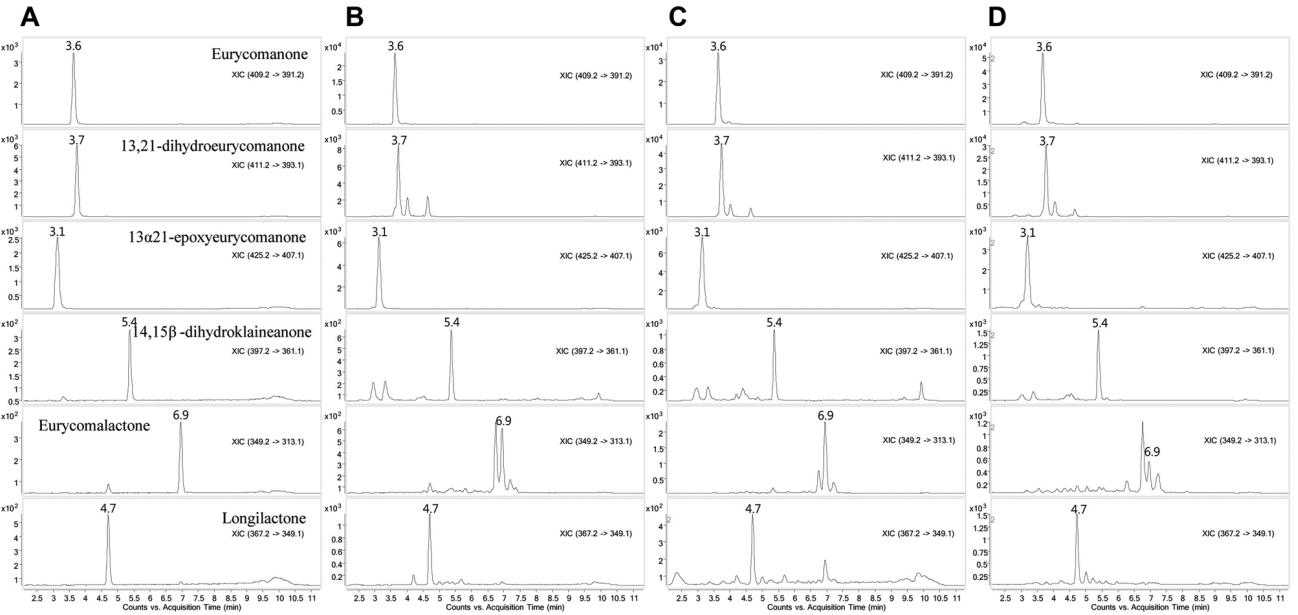
Mass spectrometry analysis reveals the bioactive compound profiles in reference standards versus actual Tongkat Ali capsules and tablets, showing how processing affects active ingredient content.[24]
Dosing and Usage Guidelines
When it comes to supplementing with Tongkat Ali, not all extracts are created equal. Understanding proper dosing is crucial to experiencing the full benefits while ensuring safety and efficacy.
Importance of Standardization
Tongkat ali dosing heavily depends on the extraction method and standardization of the product. Unlike many supplements where you can simply take "X milligrams" regardless of brand, with this one, it's essential to know what you're actually getting.
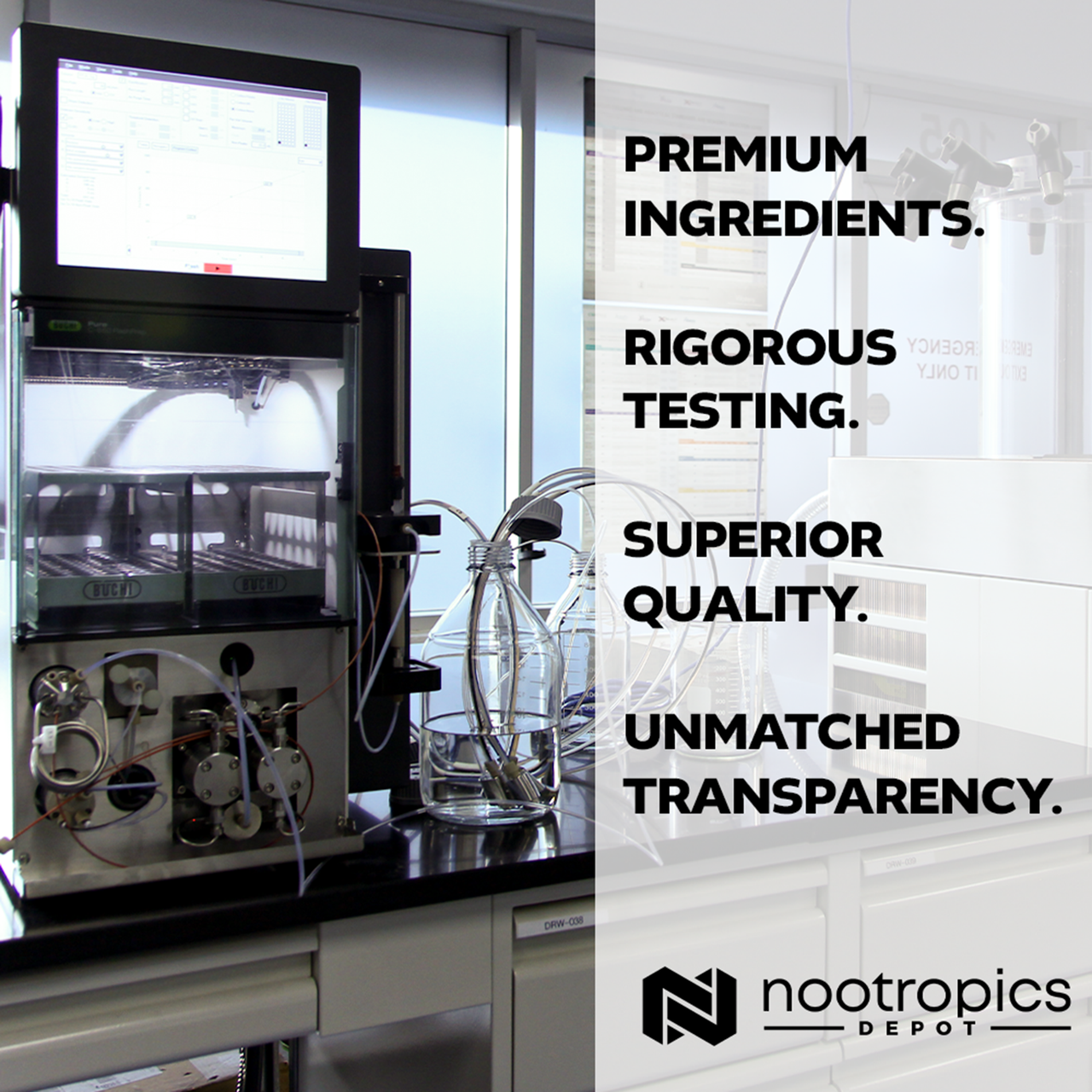
State-of-the-art analytical equipment ensures every batch meets exact specifications, representing the rigorous testing protocols that separate premium supplements from inferior products.
The key bioactive compound in quality Tongkat Ali supplements is eurycomanone, which serves as the primary marker for potency and standardization. This quassinoid has been identified as one of the most important compounds responsible for Tongkat Ali's testosterone-boosting and other beneficial effects.[24]
For example, Nootropics Depot offers two different standardizations:
- A 2% eurycomanone extract at 200mg per capsule
- A more concentrated 10% eurycomanone extract at 100mg per tablet
This illustrates an important principle: higher standardization generally requires lower overall extract dosage to achieve the same (or even better) physiological effects.
Effective Dosage Ranges Based on Research
Scientific studies have established several effective dosage ranges depending on the extract potency:
Standardized Extracts (~1-2% Eurycomanone)
- 200mg per day has been shown effective for stress reduction and hormonal balance in studies
- 400mg per day has been used successfully in strength studies with elderly participants
In the notable 2013 study by Talbott, 200mg daily of a standardized water-soluble extract for 4 weeks significantly improved stress hormone profile and mood state parameters in moderately stressed subjects.[5]
Another study with physically active seniors demonstrated that 400mg of Tongkat Ali extract daily for 5 weeks significantly increased total and free testosterone concentrations and muscular force in both men and women.[15]
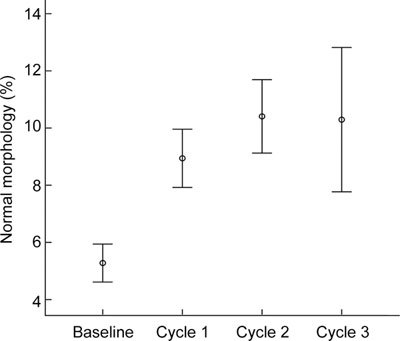
Increase in the percentage of sperm with normal morphology after treatment with a 100 mg twice daily dose of the proprietary standardized water-soluble extract of Eurycoma longifolia Jack root. A significant improvement in sperm morphology after the treatment can be seen from the baseline to the first, second and third cycles.[20]
-
High-Potency Extracts (10% Eurycomanone)
Higher-concentration extracts naturally require lower dosages to achieve similar effects, typically in the range of 100-200mg per day.
-
General Clinical Range
Based on the available research, the general effective clinical range appears to be 100mg to 400mg per day depending on extract potency. Higher-quality, standardized extracts require doses at the lower end of this range.
Timing of Supplementation: Consistency Matters
Research indicates that the benefits of Tongkat Ali are most pronounced with daily, consistent supplementation maintained for at least 4-8 weeks. Many of the positive outcomes in clinical trials weren't fully realized until several weeks of continuous use.[14]
Timing Options
Although timing hasn't been extensively studied, there are logical approaches based on its mechanisms:
- Morning dosing may be beneficial to align with natural testosterone rhythms, which typically peak in the morning hours
- Split dosing (morning and afternoon) might be preferable for those using Tongkat Ali for strength and recovery purposes, particularly at higher daily amounts
Cycling Recommendations
Short-term studies ranging from 4-8 weeks demonstrate that daily use during this timeframe is safe and effective.[5]
For those planning extended use, however, some practitioners recommend cycling strategies:
- A "5-days-on, 2-days-off" pattern has been suggested for extended periods, similar to other adaptogenic herbs
- Alternatively, an 8-12 weeks on followed by a 2-4 week break approach may allow for receptor resetting and minimize potential adaptation
According to Ulbricht et al. (2013), secondary sources state that 300mg of premium Eurycoma or 900mg of lesser-grade material has been used daily for an unknown duration. According to secondary sources, alternate use of Eurycoma during prohormone off-cycles to restore natural testosterone harmony, and for year-round use, a five-days-on/two-days-off regimen for up to eight weeks, followed by a two-week break have been used.[2]
Ultimately, the optimal Tongkat Ali dosage depends primarily on the quality and standardization of the extract, especially its eurycomanone content. For most people, daily consistent use of 100-400mg is effective, with higher-quality extracts requiring lower dosages. While short-term use appears safe without cycling, those using Tongkat Ali long-term might benefit from periodic breaks to optimize hormonal responsiveness.
As with any supplement, starting at a lower dose and gradually increasing as needed is always a prudent approach, and consulting with a healthcare provider before beginning any new supplement regimen is recommended, especially for individuals with existing health conditions or those taking medications.
Safety, Toxicology, and Side Effects of Tongkat Ali
Understanding the safety profile of any supplement is crucial, especially for herbal remedies with a growing popularity like Tongkat Ali. This section examines the available evidence on toxicology, potential side effects, and recommended safety precautions to help you make informed decisions about this traditional herbal supplement.
Preclinical Toxicology Studies
Laboratory investigations have established a reasonable safety profile for properly standardized Tongkat Ali extracts, though with important qualifications about dosage and extraction methods.
-
Acute and Subchronic Toxicity Studies
Animal studies provide important baseline data on Tongkat Ali's safety. In 2013, Li et al. conducted comprehensive toxicological evaluations showing that the oral LD50 (lethal dose for 50% of subjects) of Tongkat Ali root extract in mice exceeded 6g/kg body weight for a single dose.[25]
In their 13-week subchronic exposure study, rats given daily doses of up to 2g/kg body weight showed no adverse effects on body weight, hematology, or histopathology.[25] However, it's worth noting the extract type matters significantly -- alcohol extracts have shown higher toxicity than water extracts in multiple studies.[1]
-
Genotoxicity and Mutagenicity Findings
Research on Tongkat Ali's potential genetic toxicity has been reassuring. Li and colleagues performed both in vitro and in vivo evaluations, finding no evidence of mutagenicity or clastogenicity at concentrations up to 5mg/plate or 5mg/mL in vitro, or at doses up to 2g/kg in vivo.[25] These findings suggest that properly standardized Tongkat Ali extract at normal doses does not pose significant genotoxic risks.
-
Acceptable Daily Intake (ADI) Estimates
Based on toxicology studies, researchers have calculated the acceptable daily intake (ADI) for Tongkat Ali root extract to be up to 1.2g/adult/day (with a safety factor of 100).[25] This is substantially higher than the typical recommended dosages of 50-200 mg/day used in most clinical studies and commercial supplements (some studies cited in this paper went up to 400mg, still beneath the threshold).[1]
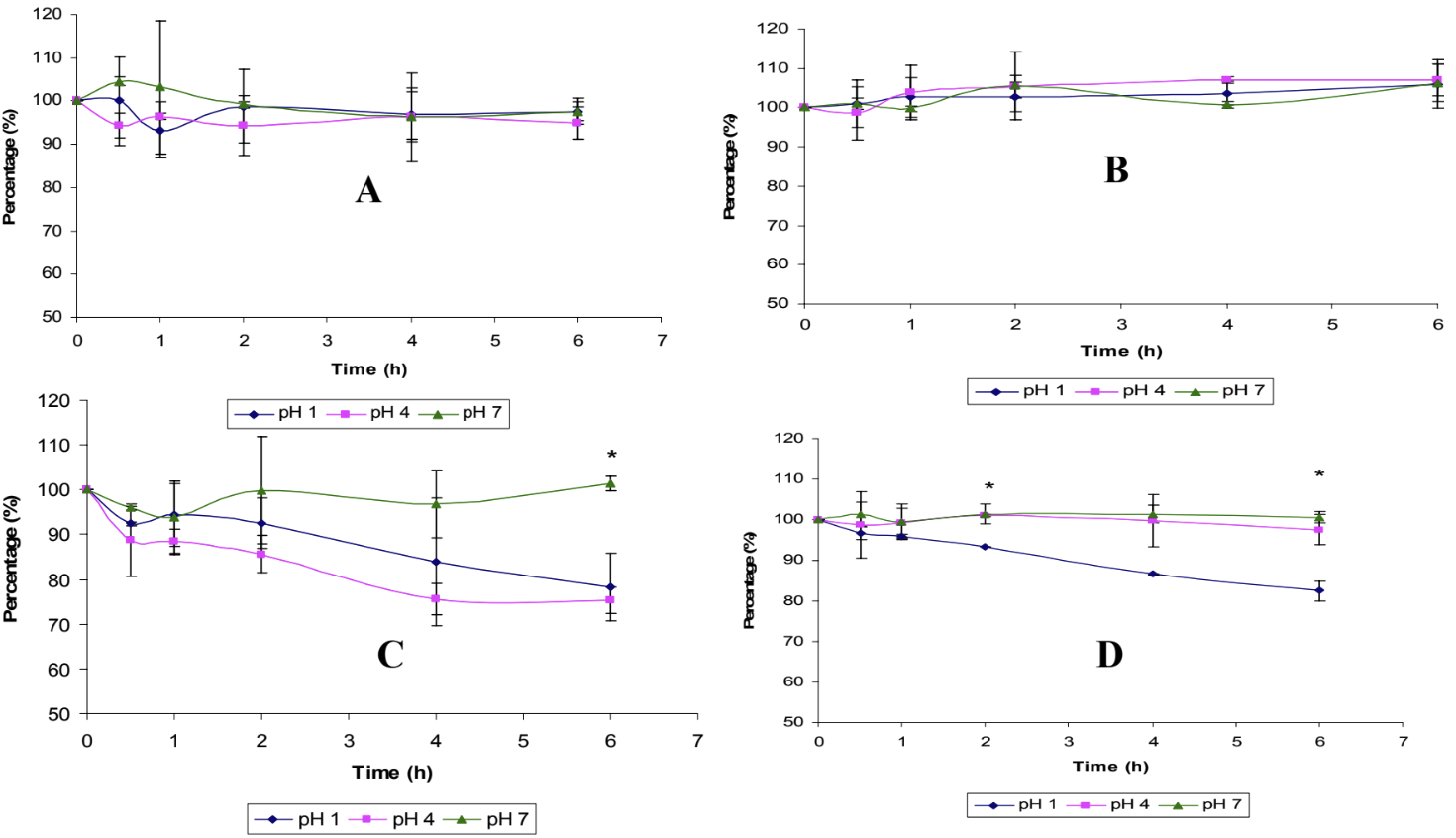
Key bioactive molecules show varying stability at different pH levels over time, with some compounds remaining more stable in neutral to alkaline conditions.[10]
The no observed adverse effect level (NOAEL) has been established at 2g/kg body weight/day, which provides a comfortable margin of safety for typical human consumption patterns.[25]
Human Safety Data
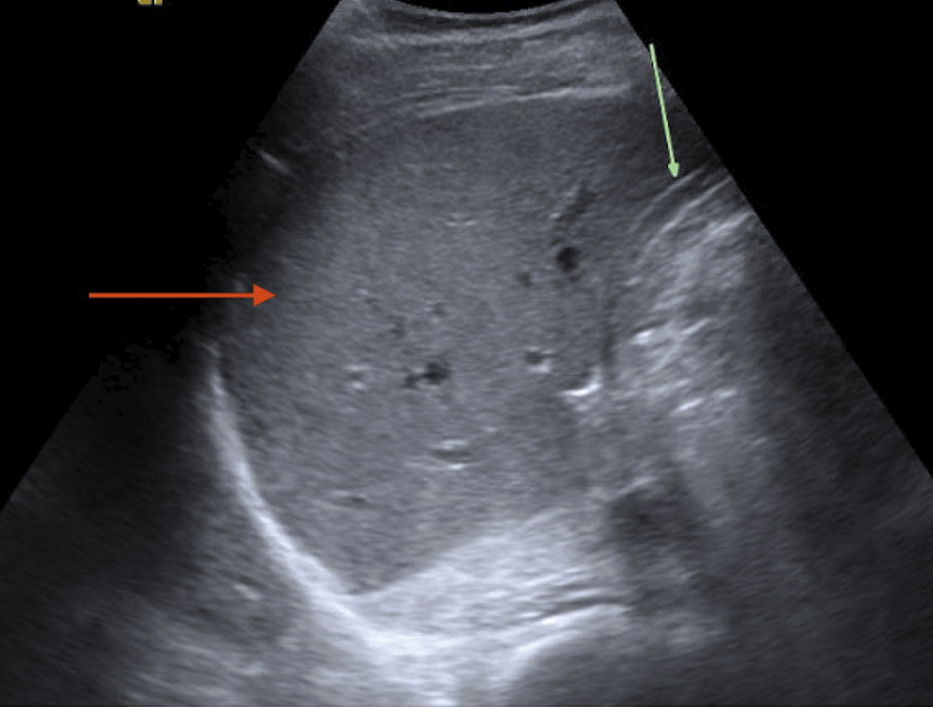
Ultrasound imaging reveals healthy liver tissue with normal echogenicity and no structural abnormalities, supporting the safety profile of properly standardized Tongkat Ali extracts.[26]
Human clinical trials provide the most relevant safety data, though the evidence base remains relatively limited compared to more extensively studied supplements.
-
Human Trial Outcomes and Lab Safety Markers
In human trials, Tongkat Ali has generally demonstrated a favorable safety profile. A notable study by Chen et al. found that supplementation with standardized water extract of Tongkat Ali (400 mg/day for 6 weeks) showed no significant changes in liver or renal function tests among male recreational athletes.[27]
Similarly, Henkel et al. reported no adverse effects in male and female seniors (aged 57-72 years) supplemented daily with 400 mg of Tongkat Ali extract for 5 weeks.[15]
-
Case Report: Rare Liver Injury Incident
Despite the generally favorable safety profile, a recently published case report by Kaliounji et al. documented a rare instance of Tongkat Ali-induced liver injury. The case involved a 47-year-old male who developed elevated liver enzymes, jaundice, and scleral icterus after taking Tongkat Ali supplement.[26]
CT scan demonstrates normal liver appearance without masses or structural changes, providing additional evidence of Tongkat Ali safety when used appropriately.[26]
The patient's symptoms improved upon discontinuation of the supplement, suggesting a causal relationship. This isolated case highlights the importance of individual susceptibility factors and the need for caution, particularly in those with pre-existing liver conditions.[26]
Potential Side Effects and Risk Factors
While generally well-tolerated, consumers should be aware of potential risks associated with Tongkat Ali supplementation.
Androgenic Effects and Hormonal Considerations
Given Tongkat Ali's established effects on testosterone levels, individuals with hormone-sensitive conditions should approach supplementation cautiously. However, the herb's pro-androgenic properties seem to limit effects on healthy populations.
Possible Contamination Risks
A significant safety concern with Tongkat Ali supplements involves potential contamination or adulteration. Some commercial products labeled as Tongkat Ali have been found to contain undeclared pharmaceutical compounds, including sildenafil (Viagra) and its analogs.[1]
This issue underscores the importance of purchasing from reputable manufacturers like Nootropics Depot that follow Good Manufacturing Practices (GMP) and conduct rigorous quality testing.
Groups Who Should Exercise Caution
Several populations should approach Tongkat Ali supplementation with particular caution:
- Individuals with liver disease: The isolated case report of Tongkat Ali-induced liver injury suggests those with pre-existing liver conditions should consult healthcare providers before use.[26]
- Patients with hormone-sensitive conditions: Those with conditions potentially influenced by testosterone levels should seek medical advice before supplementation.[1]
- People taking hypoglycemic medications: Due to Tongkat Ali's potential blood glucose-lowering effects, diabetic patients on medication should monitor their glucose levels carefully if supplementing.[12]
- Pregnant and lactating women: Due to insufficient safety data in these populations, pregnant and lactating women should avoid Tongkat Ali supplementation.[1]
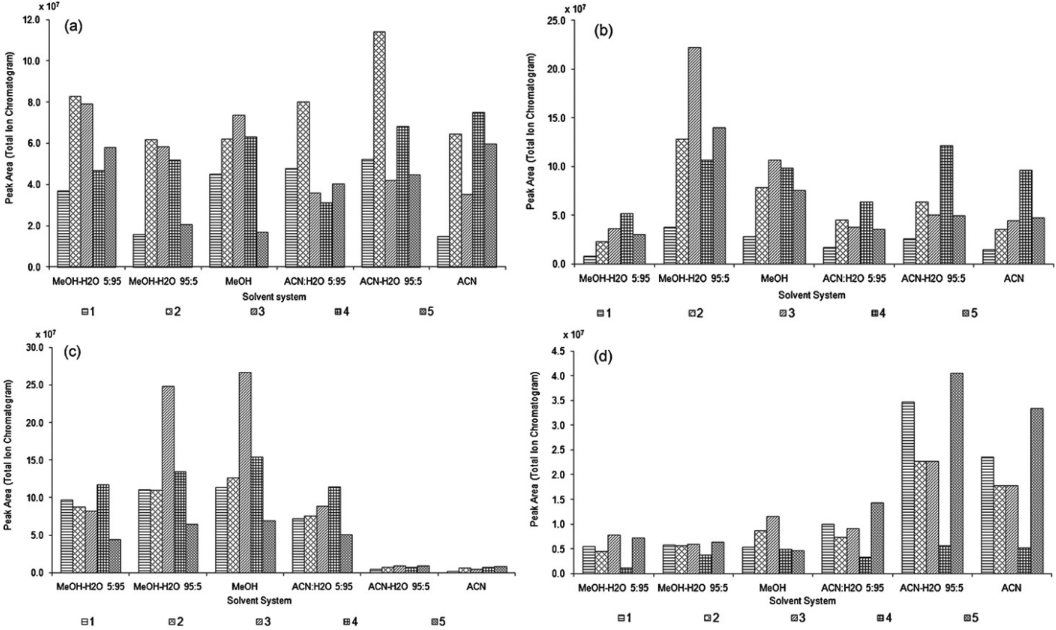
Different solvent combinations yield varying amounts of key bioactive compounds, explaining why extraction method and standardization matter for supplement effectiveness.[7]
In conclusion, Tongkat Ali demonstrates a very favorable safety profile when properly standardized water extracts are used at recommended dosages. However, as with any supplement, individual responses may vary, and consulting with a healthcare provider before beginning supplementation is always advisable, especially for those with pre-existing health conditions or those taking medications.
How to Choose a Quality Tongkat Ali Supplement
With the surge in popularity of Tongkat Ali, the market has become flooded with products of varying quality. Knowing what to look for can make the difference between experiencing powerful benefits or wasting your money on ineffective supplements.
Important Quality Markers
When evaluating Tongkat Ali supplements, several key quality markers stand out:
-
Standardized Extract
A quality Tongkat Ali supplement should clearly indicate standardization to specific bioactive compounds, primarily eurycomanone. This standardization ensures consistent potency across batches and provides a reliable measure of supplement strength.[7]
-
Extraction Method
Hot-water extraction is the traditional and preferred method for Tongkat Ali, as it effectively preserves the full spectrum of bioactive compounds while eliminating potentially harmful components.[1]
-
Root Origin
Products should ideally specify that they're derived from Malaysian or Indonesian Eurycoma longifolia, as these regions produce the highest quality plants with optimal bioactive profiles. The age of the root matters too -- roots harvested after 5+ years contain higher concentrations of beneficial compounds.
-
Bitter Taste
Authentic Tongkat Ali contains quassinoids that impart an intensely bitter taste, one of the most reliable indicators of genuine extract. Products that lack this characteristic bitterness may be diluted, adulterated, or of inferior quality.[1]
Red Flags to Avoid
Be wary of supplements that display these warning signs:
-
Unspecified Standardization
Products that don't clearly state their eurycomanone content or other standardized compounds should be approached with caution. This lack of transparency often indicates poor quality control or diluted extracts.
-
Abnormally Low Prices
Quality Tongkat Ali is expensive to source and process properly. Supplements priced significantly lower than market average often contain inferior ingredients, minimal active compounds, or potentially harmful adulterants.
-
Synthetic Additives
Some unscrupulous manufacturers have been caught adding pharmaceutical compounds like sildenafil (Viagra) to their products.[24] Always check for third-party testing to ensure purity - if there's no third-party lab test provided, it may not be worth the risk.
-
"Wild Harvested" Claims Without Verification
While wild-harvested roots may have superior properties, this claim is often made without verification. Sustainable cultivation is increasingly important as wild populations diminish.
-
Proprietary Blends Without Disclosure
Products that hide Tongkat Ali dosage within "proprietary blends" make it impossible to determine if you're receiving an effective amount of the extract.
Third-Party Testing
Independent verification of supplement quality provides crucial assurance:

Official lab documentation confirms 10% eurycomanone content and tests for heavy metals, microbials, and purity - the type of transparency consumers should demand from supplement manufacturers.
-
Heavy Metal Testing
Quality suppliers test for lead, mercury, arsenic, and cadmium contamination—particularly important for root-based supplements that absorb elements from soil.
-
Microbial Testing
Verification of the absence of harmful bacteria, yeast, mold, and other microorganisms ensures product safety.
-
Authenticity Testing
Advanced analytical methods like HPLC (High-Performance Liquid Chromatography) and mass spectrometry confirm the presence and concentration of key compounds like eurycomanone.[7]
-
Certificate of Analysis (COA)
Reputable companies make their testing certificates available upon request, documenting the exact components and purity of their products.
Root vs. Other Plant Parts
The root of Eurycoma longifolia contains the highest concentration of bioactive compounds, making it the superior choice for supplementation:
-
Root Extract
The traditional and most potent form, containing the full spectrum of quassinoids, alkaloids, and other beneficial compounds. The deeper portions of the root (especially the taproot) contain higher concentrations of active ingredients.
-
Stem and Leaf Extract
Sometimes marketed as Tongkat Ali but contain significantly lower concentrations of bioactive compounds. These are generally less effective and should be avoided when seeking the full benefits of Tongkat Ali.
-
Whole Plant Extracts
These dilute the potent compounds found in the root and may include plant parts with minimal beneficial properties. Always look for products specifically indicating "root extract."
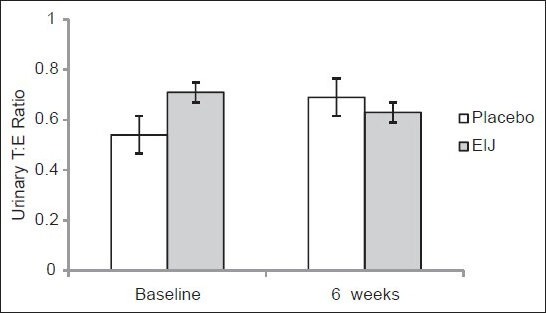
Urinary testosterone-to-epitestosterone ratios remained stable after 6 weeks of supplementation, indicating Tongkat Ali supports natural hormone production without triggering doping concerns.[27]
Popular Standardization Ratios
Different extraction methods produce varying levels of active compounds:
-
1-2% Eurycomanone
This concentration represents a standard hot-water extract that preserves the natural compound profile while providing a reliable dose of the primary active constituent.
-
10% Eurycomanone
These high-potency extracts deliver concentrated levels of the key bioactive compound, allowing for smaller effective doses and potentially stronger effects.
-
100:1 or 200:1 Concentration Claims?
These ratios indicate the amount of raw material used to create the extract (e.g., 100 kg of raw root to produce 1 kg of extract). While impressive-sounding, these numbers don't necessarily correlate with bioactive compound content and can be misleading without standardization data. 100:1 of what, exactly?!
Nootropics Depot Tongkat Ali Options
Nootropics Depot offers two premium Tongkat Ali products that meet the highest quality standards:
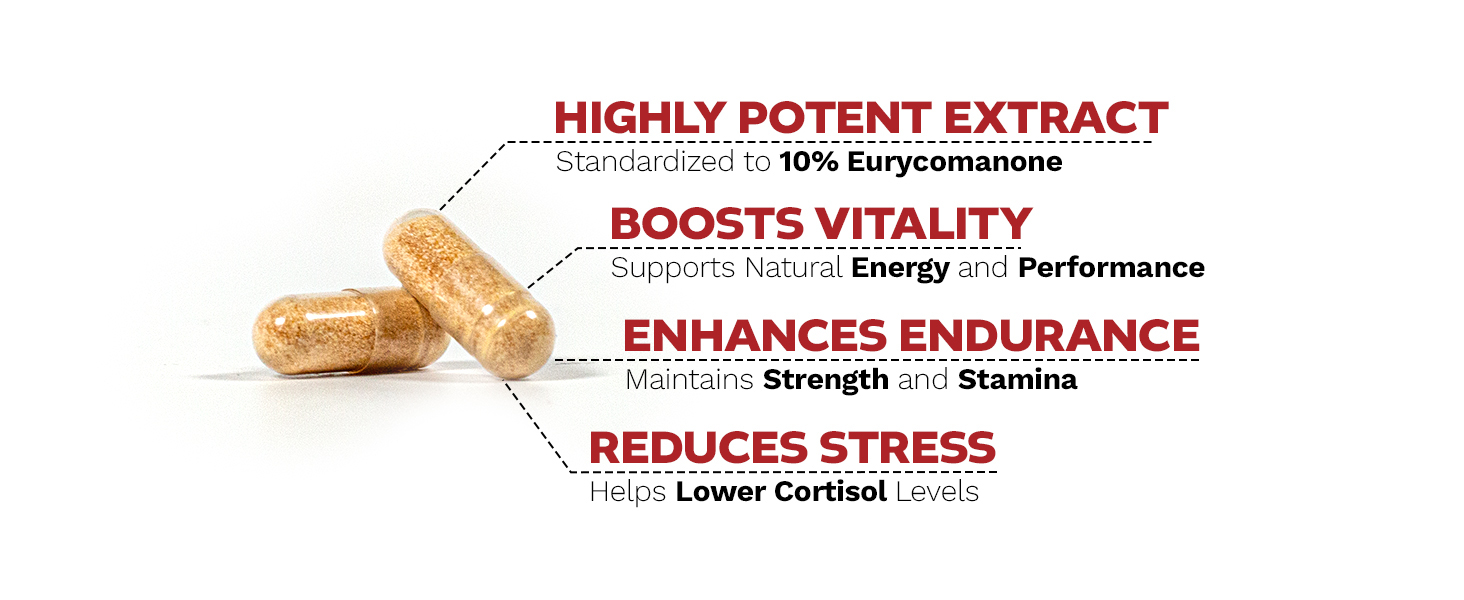
High-potency standardized extract delivers comprehensive support for male vitality, athletic performance, and stress management in convenient capsule form.
-
2% Eurycomanone Extract (200mg capsules, tablets, and powder)
This extract represents a traditional hot-water extraction method that preserves the full spectrum of natural compounds while providing a reliable 2% eurycomanone content. This standardization level closely mirrors the extracts used in many successful clinical studies.
-
10% Eurycomanone Extract (100mg capsules and tablets)
This higher-potency tongkat 10% extract delivers concentrated levels of the primary active compound, allowing for potentially stronger effects. The increased standardization creates a more consistent and powerful supplement experience.
Testing and Quality Assurance

Five-tier quality commitment ensures superior sourcing, FDA-registered manufacturing, comprehensive testing, domestic production, and sustainable practices for maximum consumer confidence.
Nootropics Depot, the sponsor of this article, subjects their Tongkat Ali products to rigorous testing protocols:
- Identity verification using multiple analytical methods
- Potency testing to confirm standardization levels
- Microbial and heavy metal screening
- Batch-to-batch consistency testing
They're all published on their website, too!
Benefits of Higher-Quality Products
Choosing premium options like Nootropics Depot's Tongkat Ali provides several advantages:
- Consistent results: Standardized extracts deliver reliable benefits from dose to dose
- Higher efficacy: Proper extraction methods preserve delicate bioactive compounds
- Safety assurance: Rigorous testing eliminates common contaminants
- Value optimization: While premium products may cost more initially, their higher potency often provides better value per effective dose
When it comes to Tongkat Ali, quality directly impacts results. By choosing products with transparent standardization, proper extraction methods, and rigorous testing protocols, you maximize your chances of experiencing the full spectrum of benefits this remarkable herb has to offer. Nootropics Depot passes all of those tests.
But before publishing, Nootropics Depot took it even further in June of 2025:
The Tongkat Ali Market: Why Most Products Fail to Deliver
Recent third-party lab testing of popular Tongkat Ali products reveals a shocking truth about the supplement market: most products contain little to no active compounds, despite premium pricing and bold marketing claims.
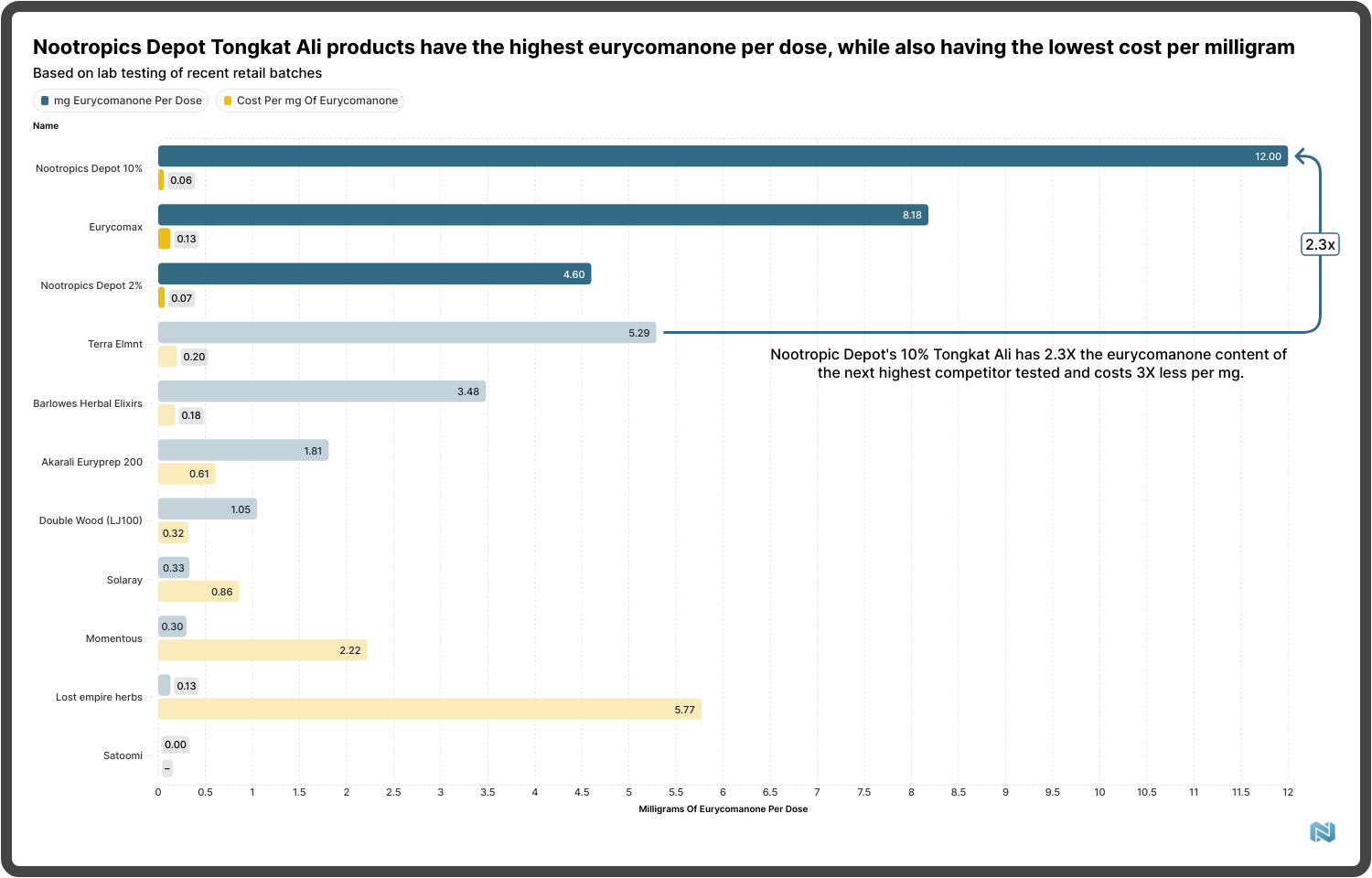
Market analysis reveals Nootropics Depot 10% extract contains 12mg eurycomanone per dose (as tested by UPLC) - 2.3 times higher than the next closest competitor while costing significantly less per milligram.
Independent Lab Testing Results
Independent laboratory analysis of retail Tongkat Ali products taken in the spring of 2025 shows dramatic differences in actual eurycomanone content across brands. The results expose why many consumers believe "Tongkat Ali doesn't work" -- they've been purchasing products with virtually no active ingredients!
Key findings from the market analysis:
- Potency varies by over 100x: The highest-quality product contained 12mg of eurycomanone per dose, while several contained less than 0.5mg
- Some products contain zero active compounds: Some products marketed as "Tongkat Ali" showed no detectable eurycomanone despite premium pricing
- Cost efficiency varies by 40x: The most cost-effective product delivered 18mg of eurycomanone per dollar, while others provided essentially nothing for the money
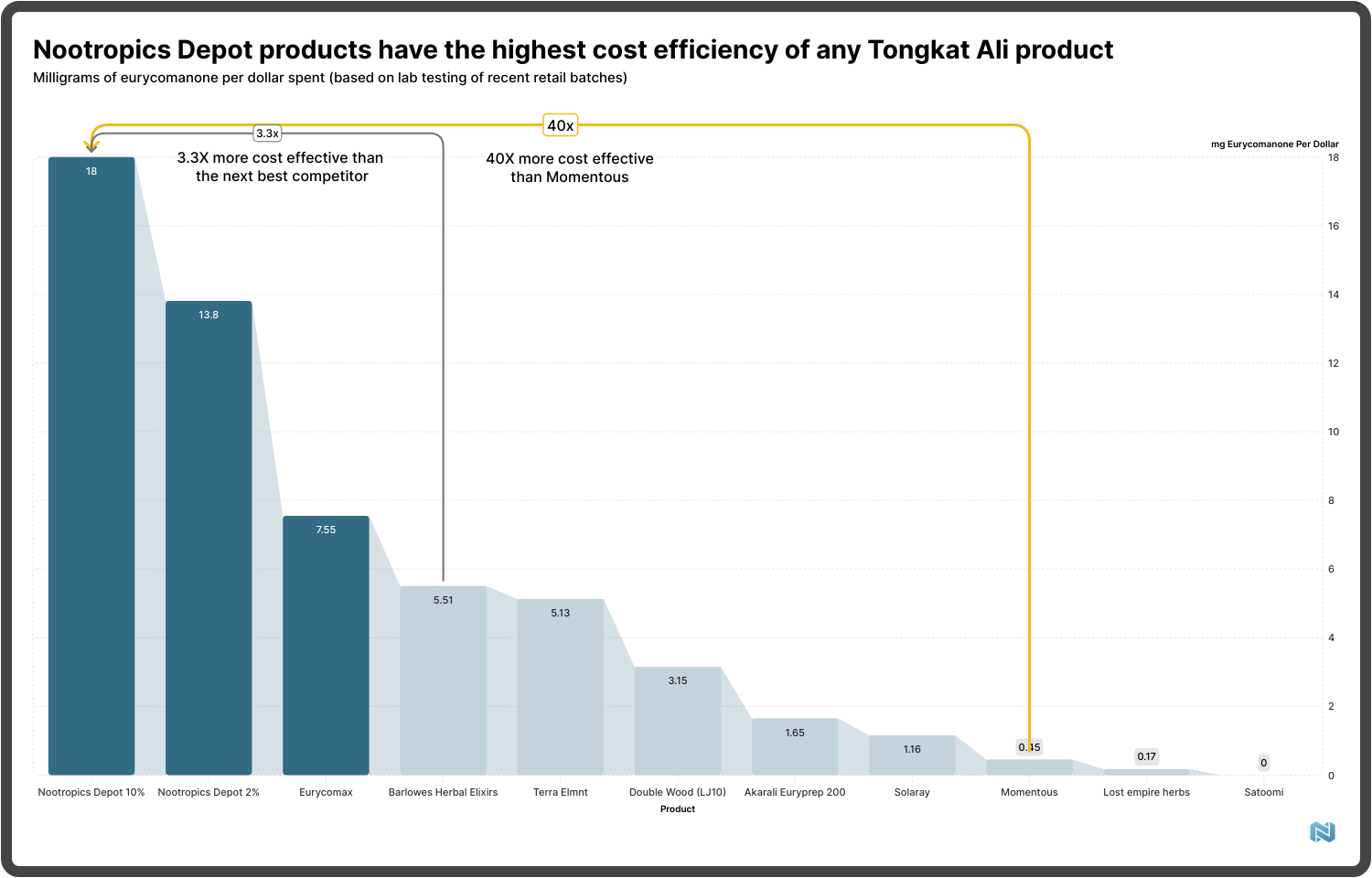
Dollar-for-dollar comparison (as tested by UPLC) demonstrates Nootropics Depot delivers 18mg eurycomanone per dollar spent - 3.3 times more cost-effective than the next best option and 40 times better than some competitors.
The eurycomanone concentration was quantified via UPLC (ultraperformance Liquid Chromatography), which measures the amount of the compound compared to a known amount of an analytical standard.
The Standardization Problem
Standardization of eurycomanone content is crucial: Without proper testing and transparency, consumers have no way to know whether they're getting an effective product or expensive filler.
The testing revealed that Nootropics Depot's 10% eurycomanone extract leads the market with:
- 12mg eurycomanone per dose -- 2.3x higher than the next closest competitor
- Superior cost efficiency -- 3.3x more cost-effective than the next best option
- Transparent standardization -- clearly labeled eurycomanone content with published lab results
The Solution: Demand Transparency
When choosing a Tongkat Ali supplement, look for:
- Clear eurycomanone standardization (2% minimum, 10% preferred)
- Published lab results showing actual eurycomanone content per dose
- Third-party testing for purity and potency verification
- Reputable manufacturers with transparent quality control processes
This market analysis underscores why we consistently recommend Nootropics Depot's standardized extracts: They represent the rare combination of maximum potency, verified quality, and exceptional value that consumers deserve but rarely find in this market.
There's even more learning to be done in Nootropics Depot's tongkat ali research snapshot article.
Stacking Tongkat Ali with Other Natural Compounds
While Tongkat Ali is highly effective on its own, many users find enhanced results when combining it with other natural compounds that support hormonal health through complementary mechanisms.
Cistanche: The Perfect Complement
Cistanche tubulosa, also known as desert ginseng, is a synergistic combination for Tongkat. This fascinating holoparasitic plant attaches to desert shrub roots and has been used in Traditional Chinese Medicine for centuries alongside Tongkat Ali-type herbs.
Cistanche operates through different pathways, including phenylethanoid glycosides (PhGs) that support energy metabolism, circulation, and cellular health. This makes it an excellent complement for both men and women seeking vitality support without the same direct hormonal impact.
Research on Cistanche shows benefits for immune function, neuroprotection, and physical endurance[23] -- effects that pair naturally with Tongkat Ali's testosterone and stress-balancing properties.
The combination may be especially beneficial for those seeking comprehensive support for energy, recovery, and long-term vitality. We'll be covering Cistanche in detail in an upcoming article, including proper standardization markers and quality considerations. Nootropics Depot once again has an extremely well-sourced Cistanche supplement that is besting the rest of the market.
This and much more are available at Nootropics Depot's testosterone supplements page.
Foundational Support Compounds
Several foundational nutrients can enhance Tongkat Ali's effectiveness:
- Zinc (preferably as zinc picolinate for superior absorption) plays a crucial role in testosterone synthesis and overall reproductive health. Many individuals have suboptimal zinc status, which can limit the effectiveness of testosterone-supporting herbs.
- Maca root (Lepidium meyenii) works through different mechanisms than Tongkat Ali, primarily supporting the hypothalamic-pituitary axis and providing adaptogenic stress support. This makes it a complementary rather than redundant addition.
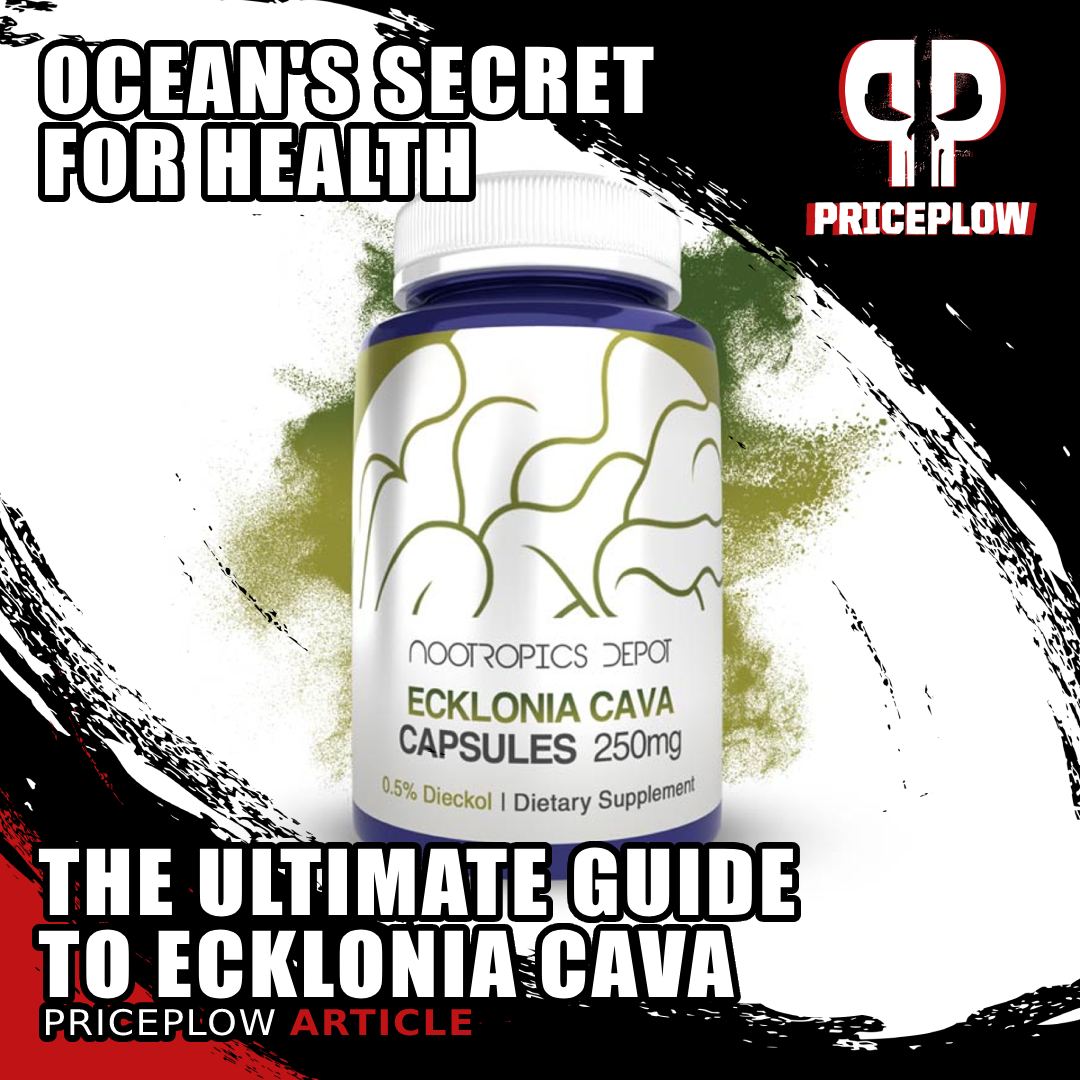
Brown seaweed Ecklonia cava outperforms land-based plants with its powerful phlorotannins! Research shows benefits for metabolism, cognition, liver health, and even hair growth.
Lifestyle Synergies
The effectiveness of any hormonal support stack depends heavily on foundational lifestyle factors:
- Adequate protein intake provides the amino acid building blocks necessary for hormone synthesis
- Minimizing dietary toxicity including heavy metals, aldehydes (or foods that convert to excessive aldehydes) and endocrine disruptors that can interfere with hormonal pathways
- Sufficient UV-B light exposure supports vitamin D synthesis, which is crucial for optimal testosterone production
- Quality sleep and stress management work synergistically with Tongkat Ali's cortisol-balancing effects
The key to successful stacking is understanding that these compounds work through different pathways, creating a comprehensive approach to hormonal health and vitality rather than simply amplifying a single mechanism.
We'll be covering Cistanche in our next major article.
Conclusion: Tongkat Ali - Tradition Meets Modern Science
As we've seen throughout this guide, Tongkat Ali stands as one of nature's most remarkable adaptogenic herbs, bridging centuries of traditional use with emerging scientific validation. From the rainforests of Southeast Asia to research laboratories worldwide, this powerful botanical has demonstrated a wide spectrum of benefits that make it a standout supplement for modern health optimization.
The evidence for Tongkat Ali's effectiveness in supporting healthy testosterone levels, enhancing sexual health, improving athletic performance, and reducing stress is fascinating. Its unique combination of quassinoids, alkaloids, and other bioactive compounds work synergistically to restore hormonal balance and vitality in ways that few other natural supplements can match.
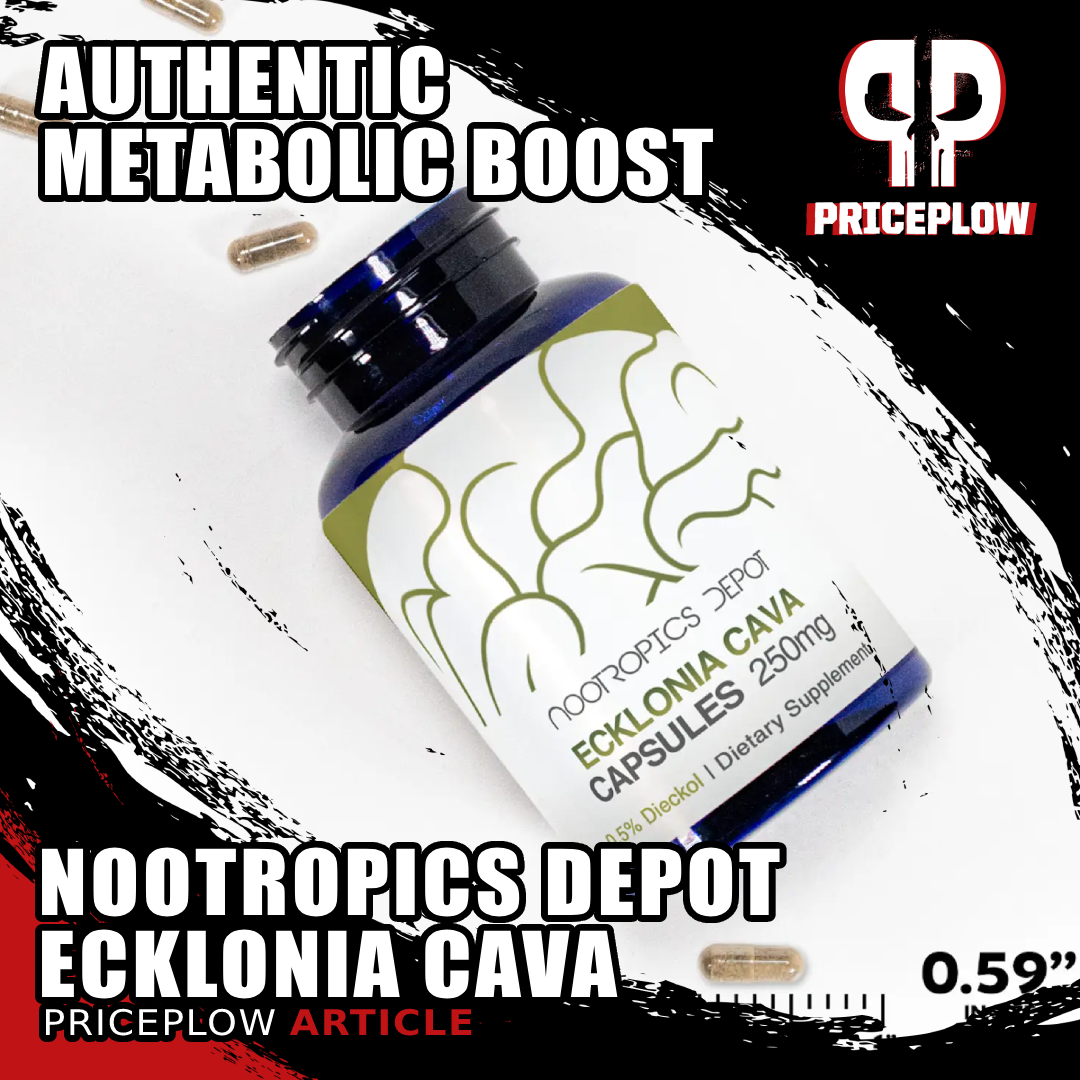
Nootropics Depot spent 6 YEARS developing their Ecklonia Cava supplement, discovering most market products aren't genuine! Their authentic marine extract offers metabolic, cognitive and sleep benefits backed by real science. The only verified Ecklonia Cava you can trust.
What really sets quality Tongkat Ali apart is proper standardization. Nootropics Depot's dual offerings of 2% and 10% eurycomanone extracts provide flexibility for both newcomers and experienced users while ensuring consistent, reliable results. Their rigorous testing protocols guarantee you're getting exactly what's on the label – pure, potent Tongkat Ali without fillers or contaminants.
Looking ahead, the future of Tongkat Ali research appears bright. Scientists continue to uncover new mechanisms of action and potential applications for this versatile herb. As more clinical studies emerge, we can expect to gain even deeper insights into optimal dosing strategies and specific populations who might benefit most from supplementation.
For men experiencing age-related hormonal decline, athletes seeking natural performance enhancement, or anyone dealing with the effects of chronic stress, Tongkat Ali offers a well-researched natural solution that addresses multiple aspects of health simultaneously.
Sign up for PricePlow's Tongkat Ali price alerts and check prices below to stay informed about the great deals and new research. For those ready to try a premium, lab-verified product, we recommend checking out Nootropics Depot's Tongkat Ali Extracts, with published third-party tests trusted by scientists and consumers alike for their exceptional quality and consistency.
Whether you're looking to revitalize your hormonal health, enhance physical performance, or simply maintain vitality as you age, Tongkat Ali may be the natural solution you've been searching for.
Nootropics Depot Tongkat Ali Extract - 10% Eurycomanone – Deals and Price Drop Alerts
Get Price Alerts
No spam, no scams.
Disclosure: PricePlow relies on pricing from stores with which we have a business relationship. We work hard to keep pricing current, but you may find a better offer.
Posts are sponsored in part by the retailers and/or brands listed on this page.
Nootropics Depot Tongkat Ali Extract - 2% Eurycomanone – Deals and Price Drop Alerts
Get Price Alerts
No spam, no scams.
Disclosure: PricePlow relies on pricing from stores with which we have a business relationship. We work hard to keep pricing current, but you may find a better offer.
Posts are sponsored in part by the retailers and/or brands listed on this page.
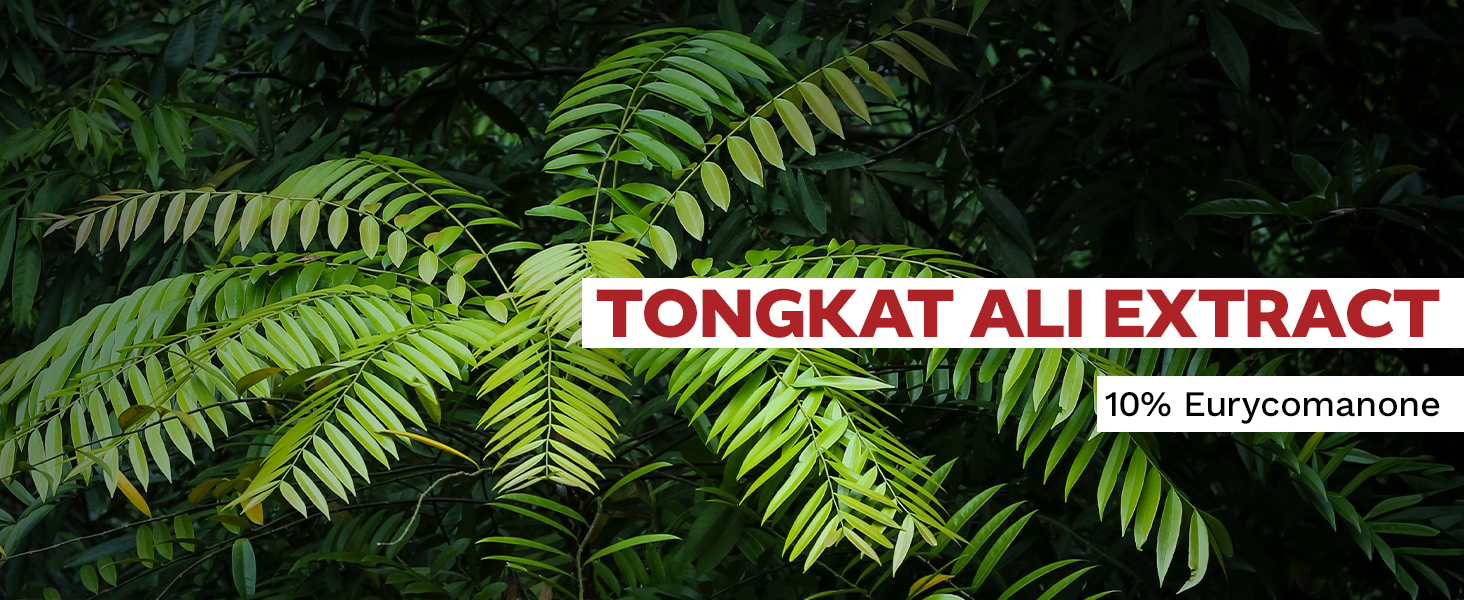
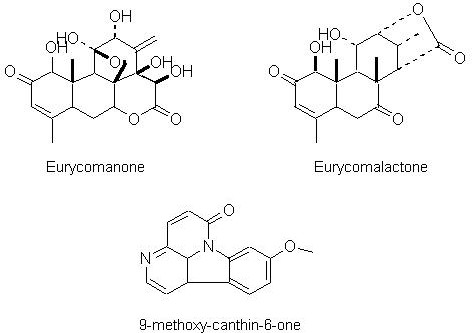
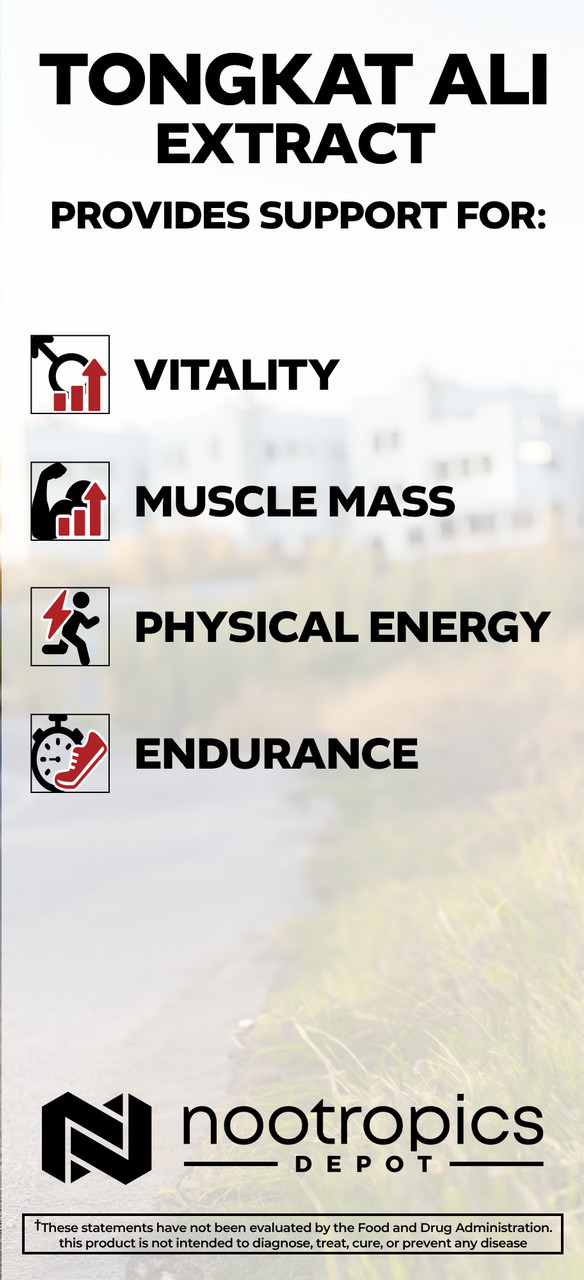
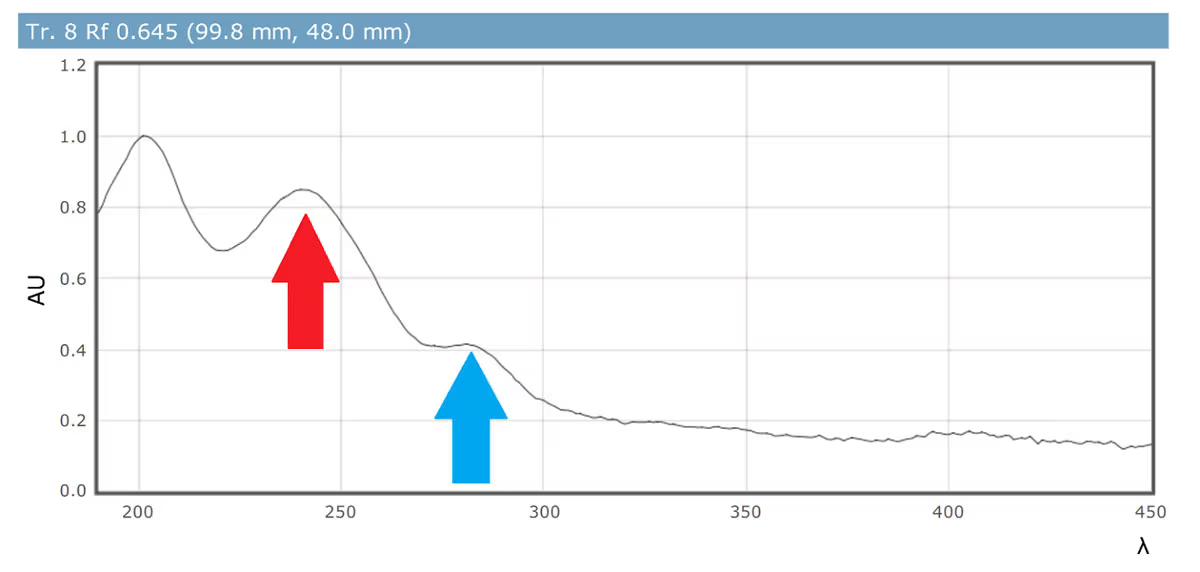
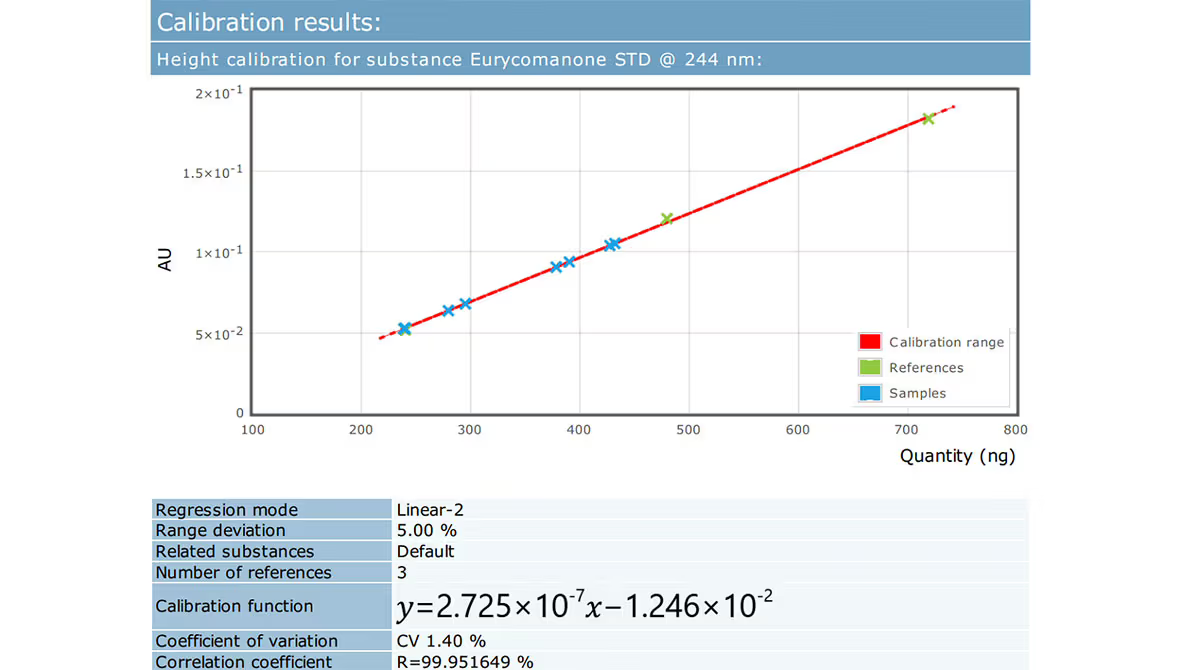
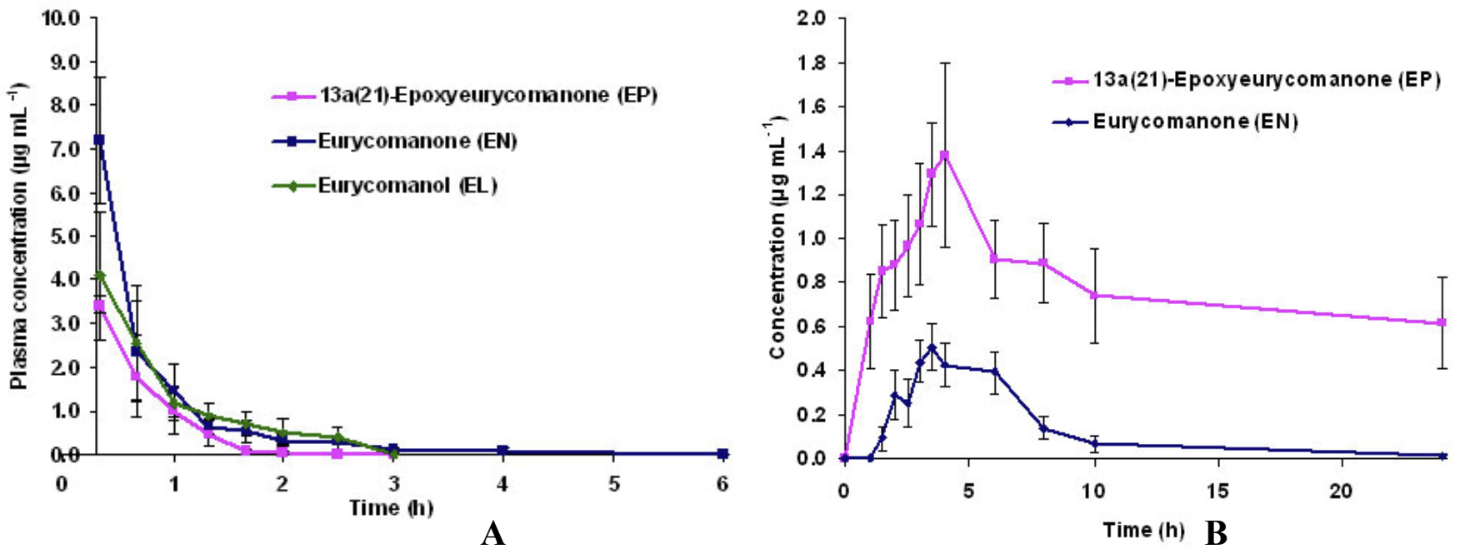
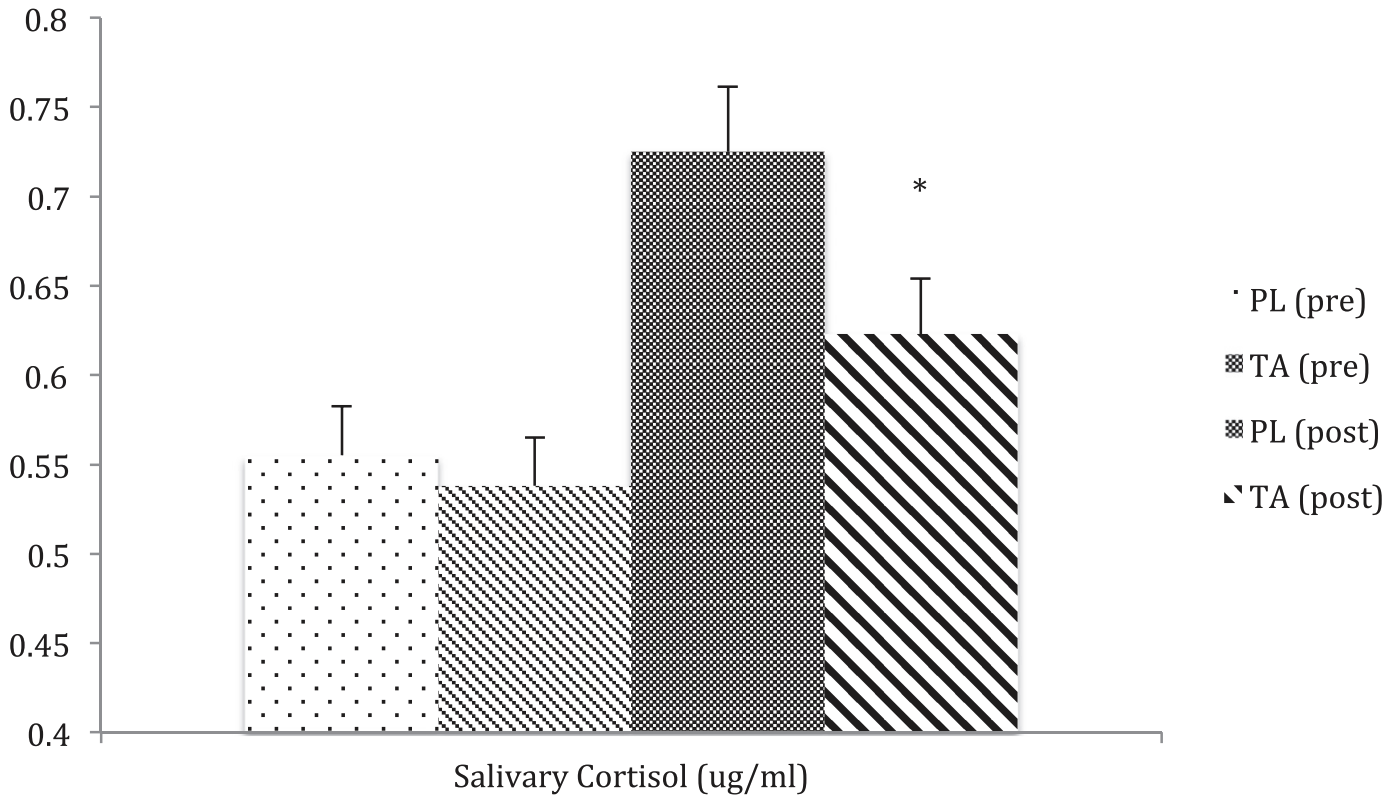
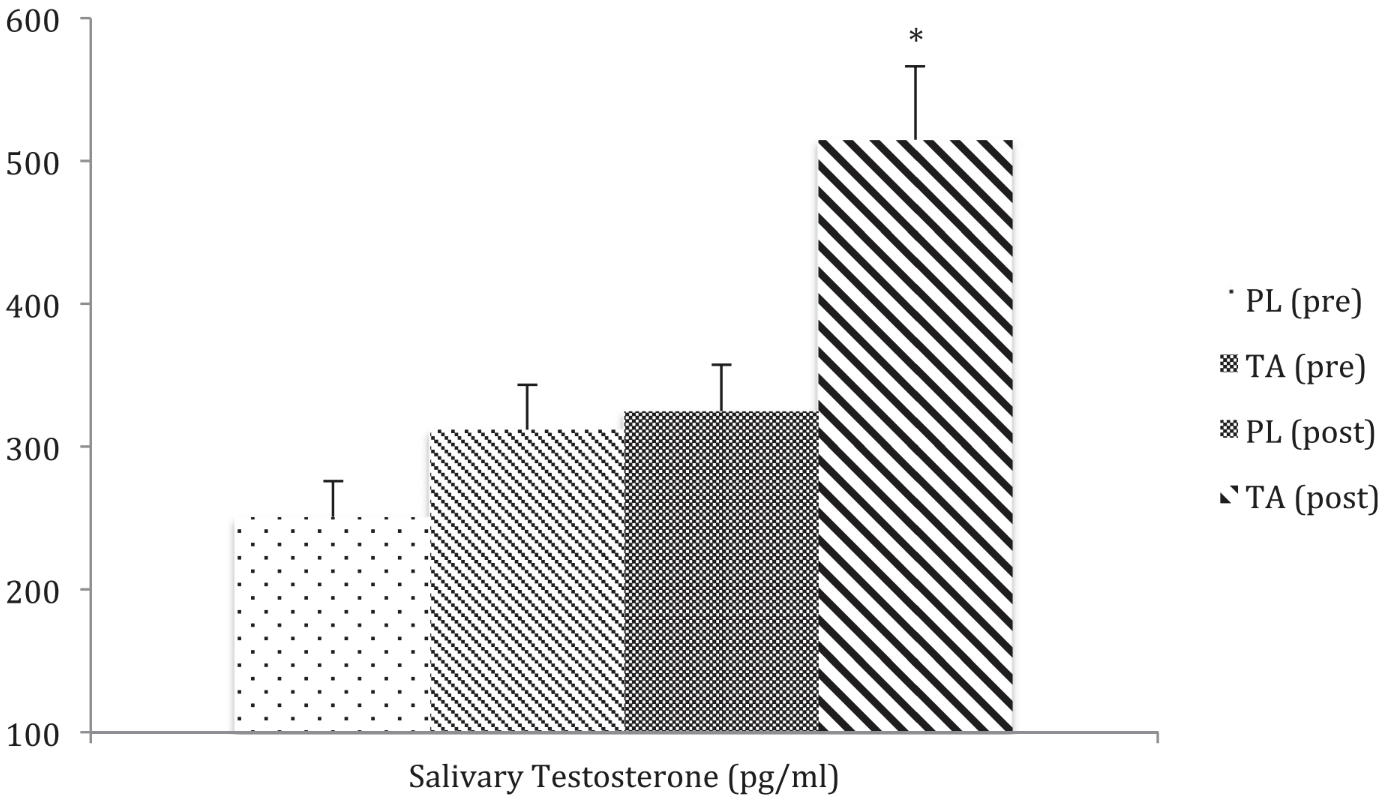

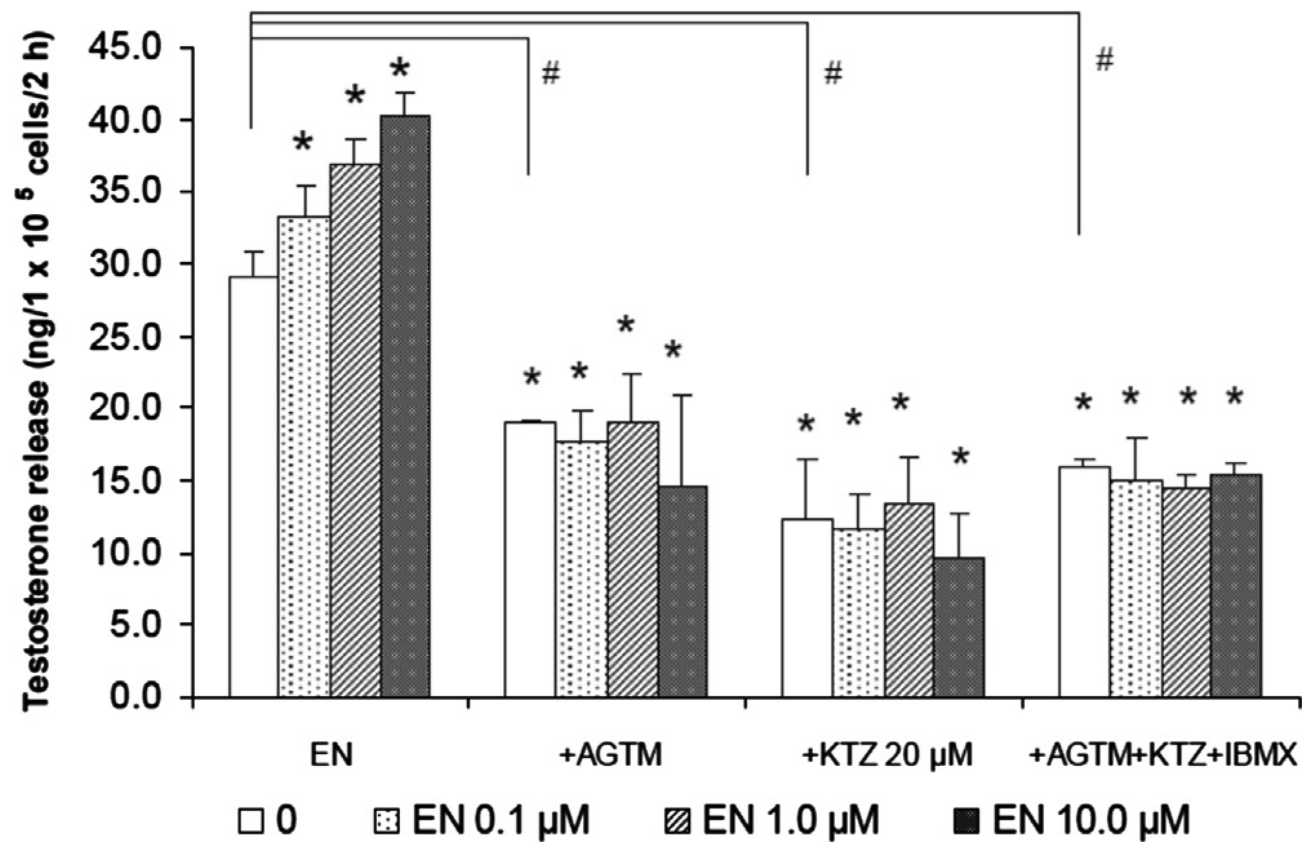
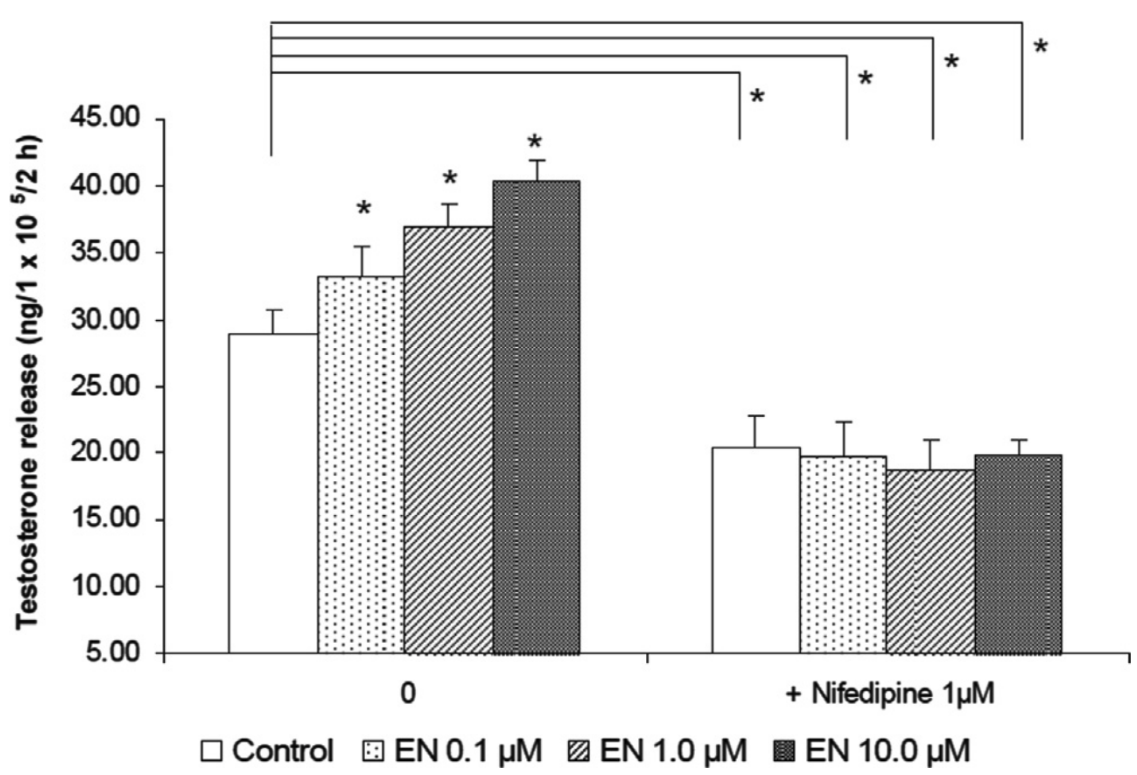
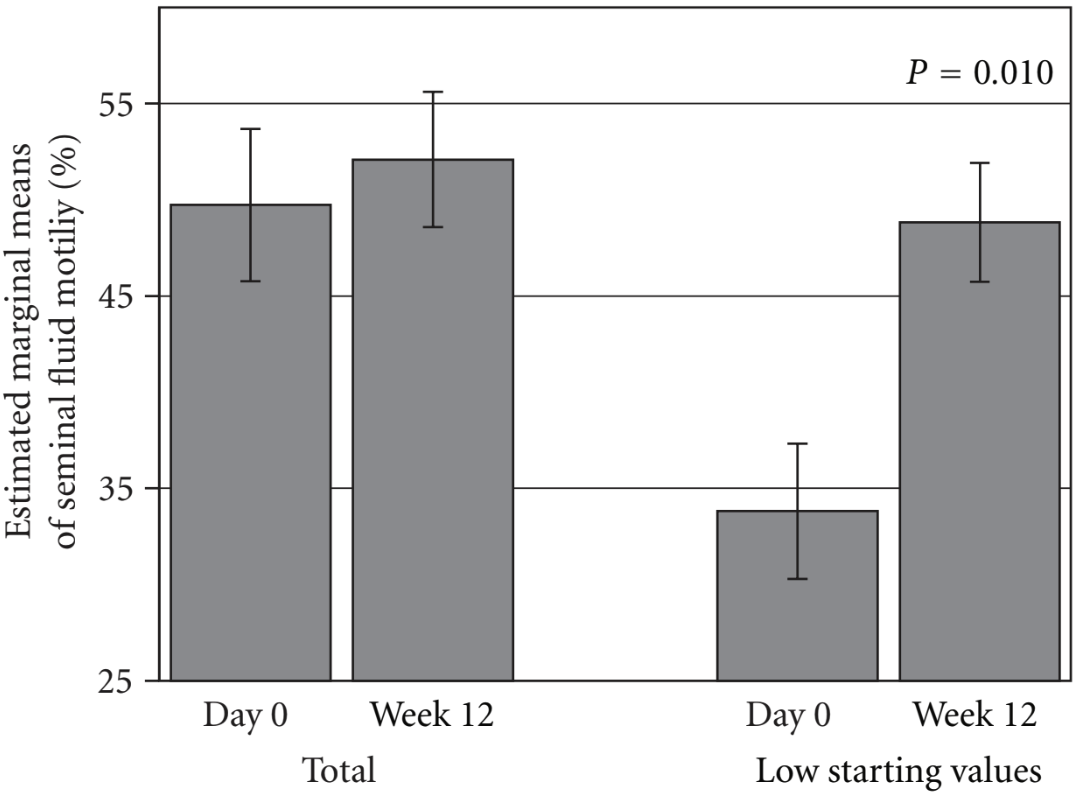
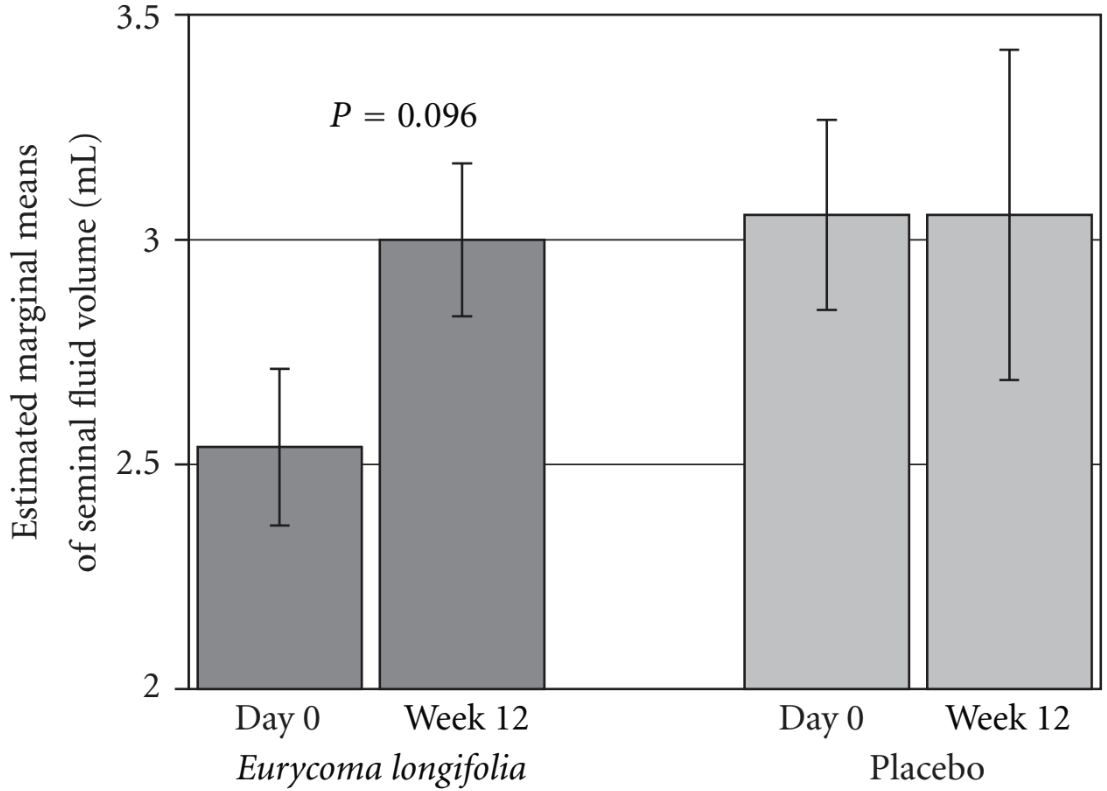
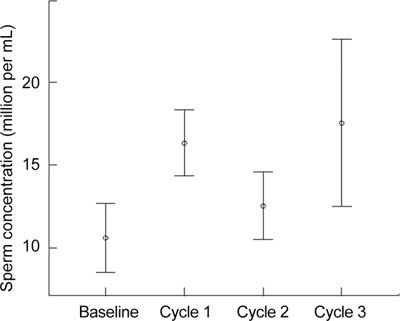
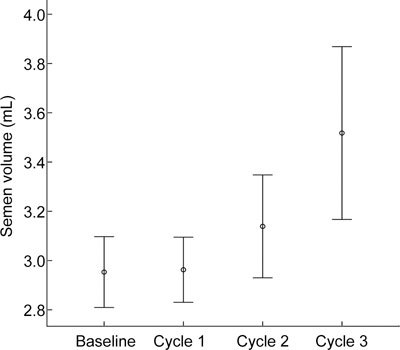
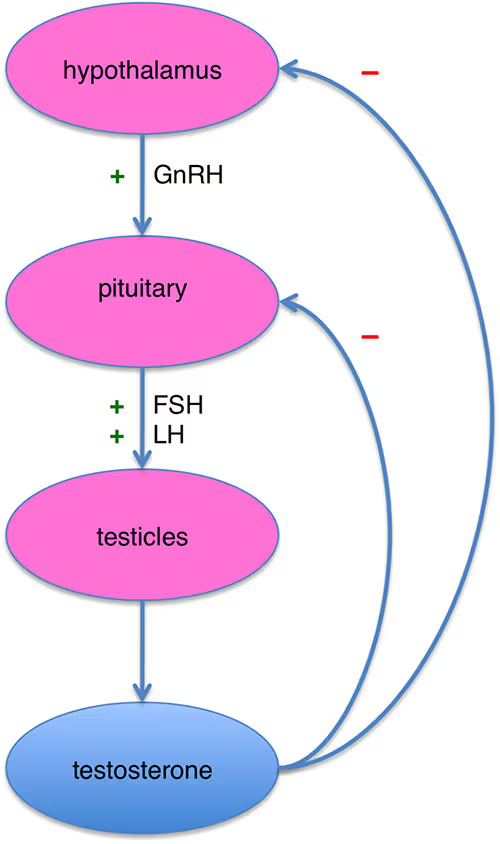
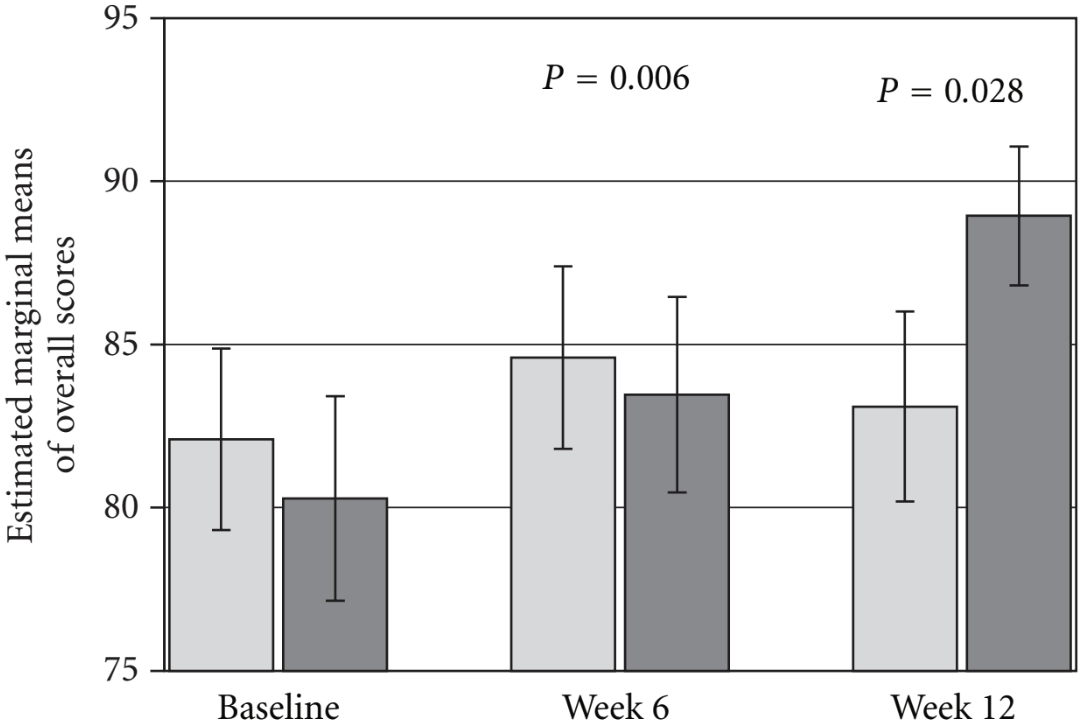
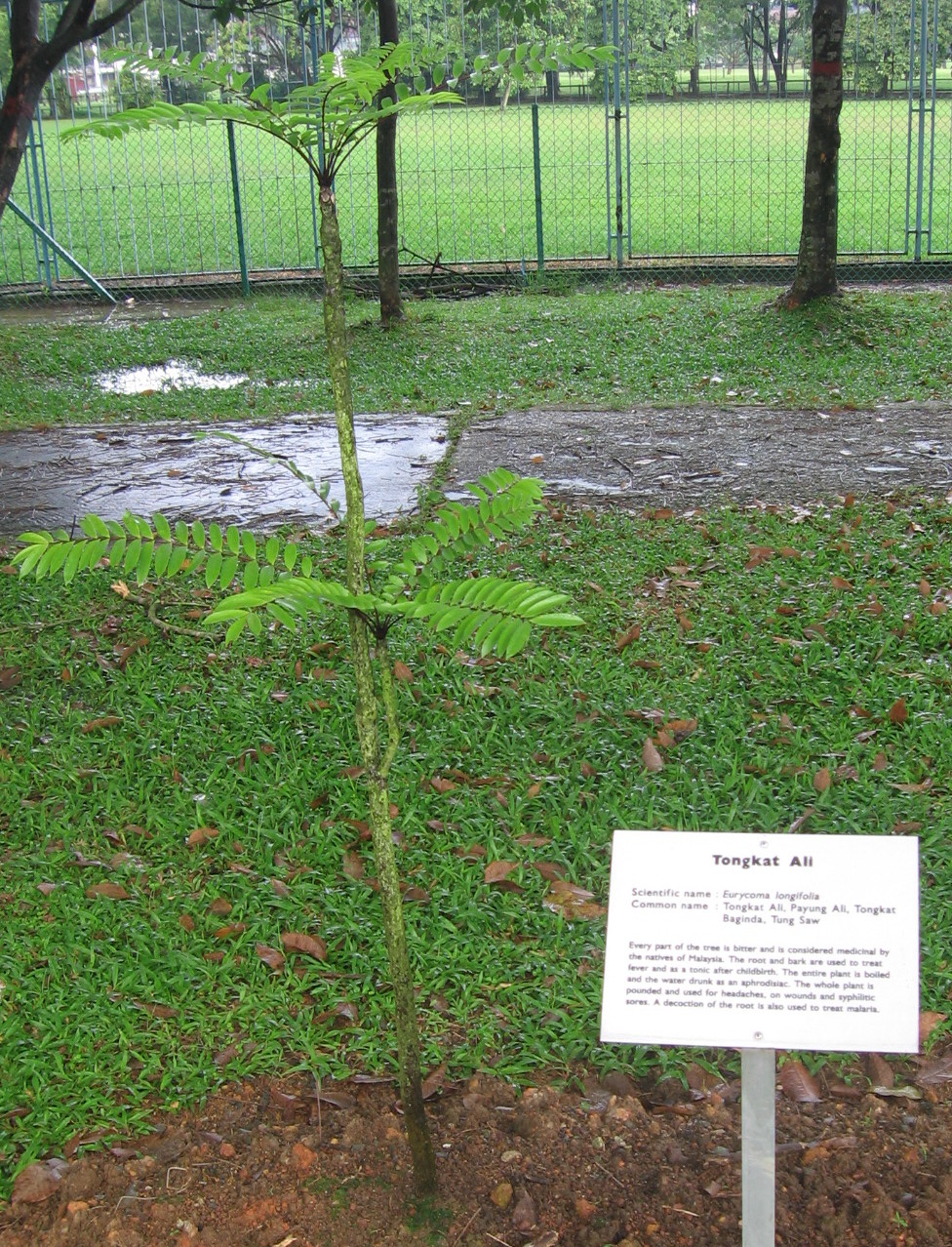
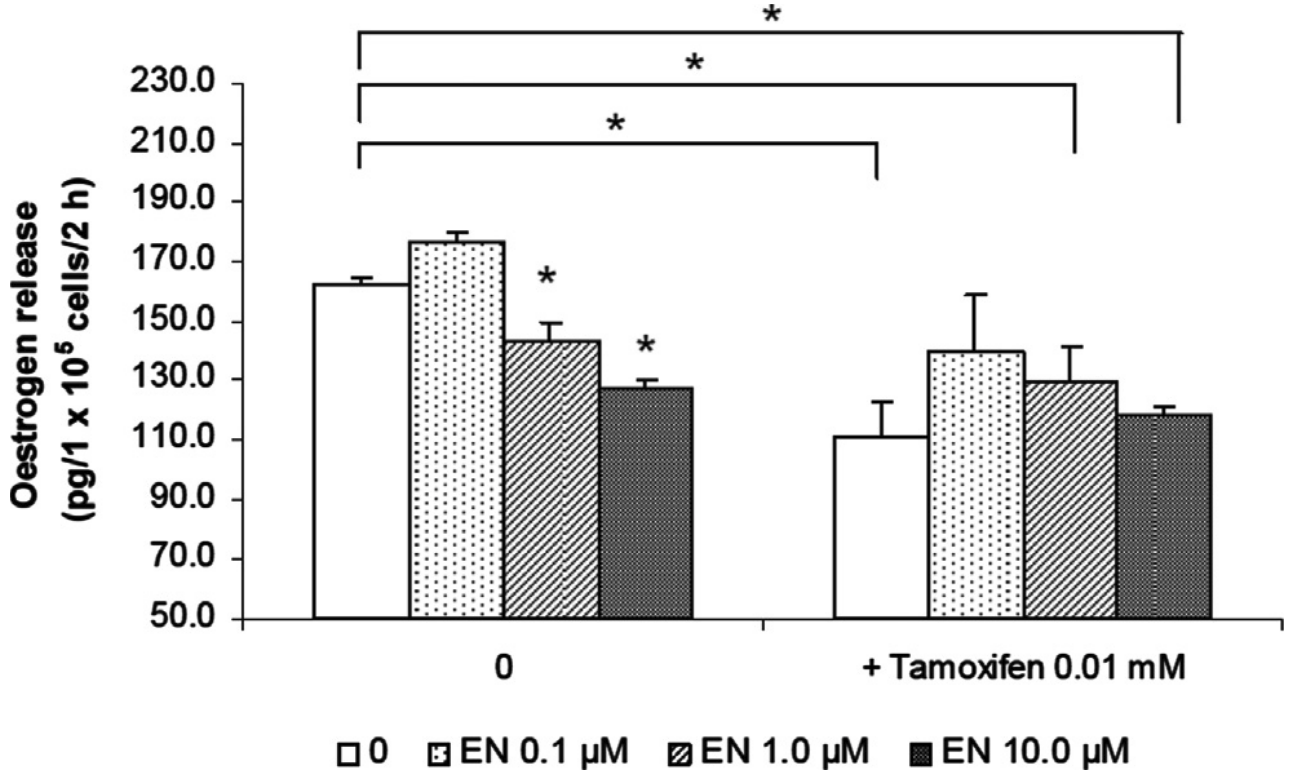
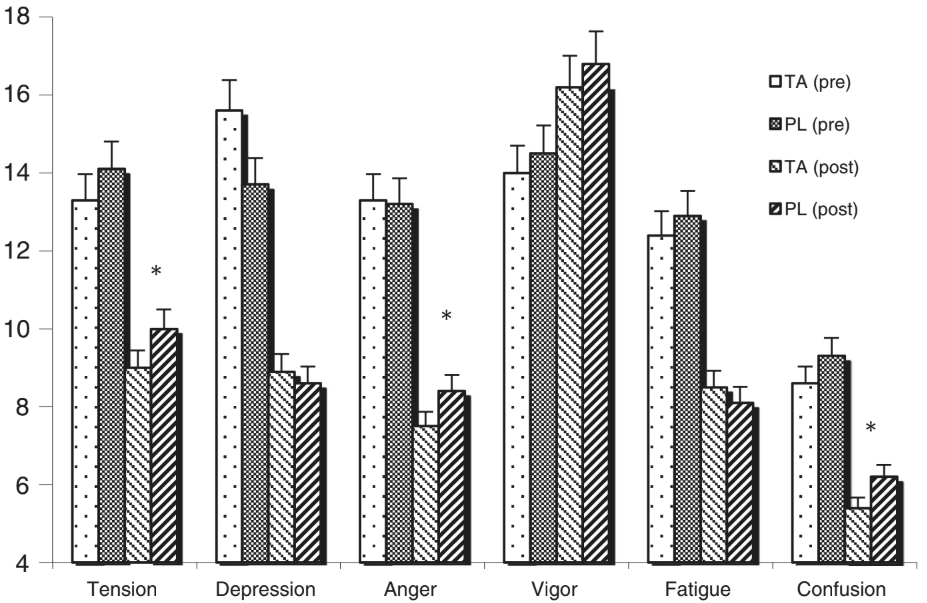
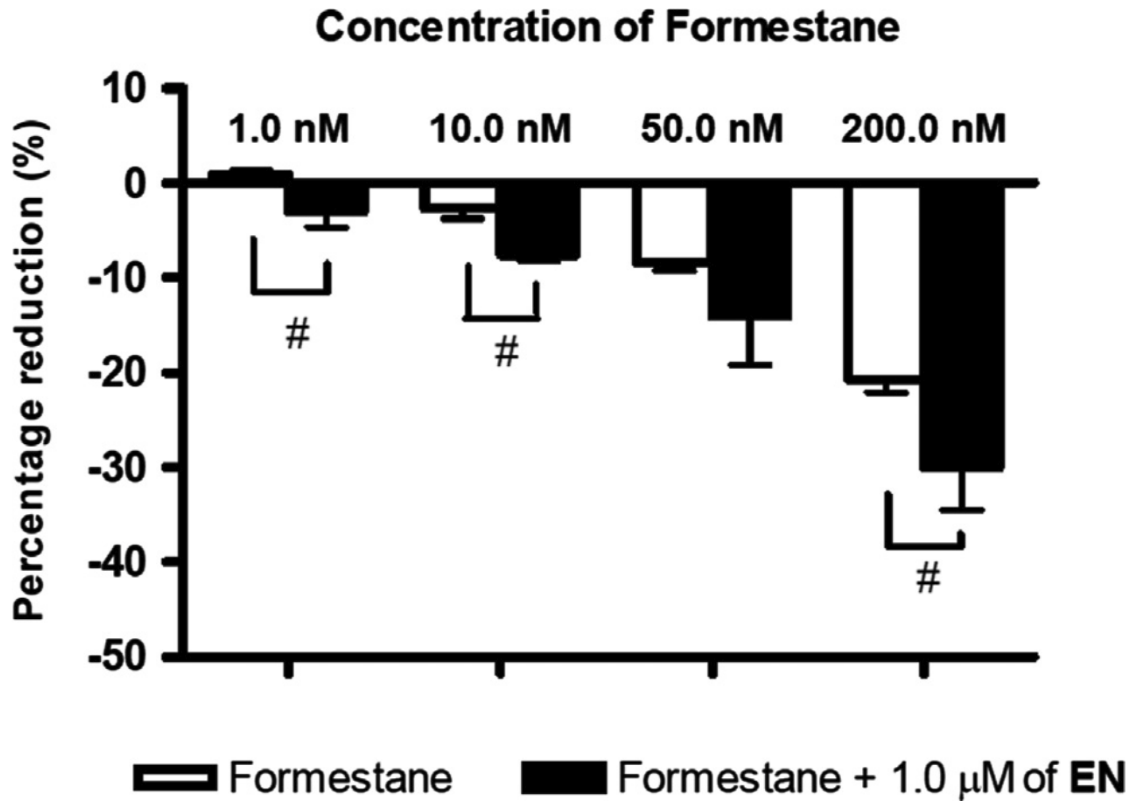
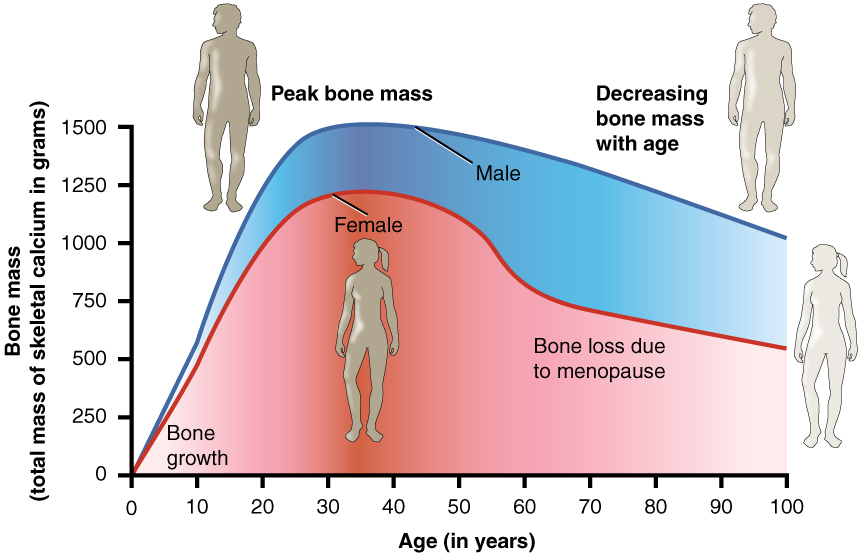
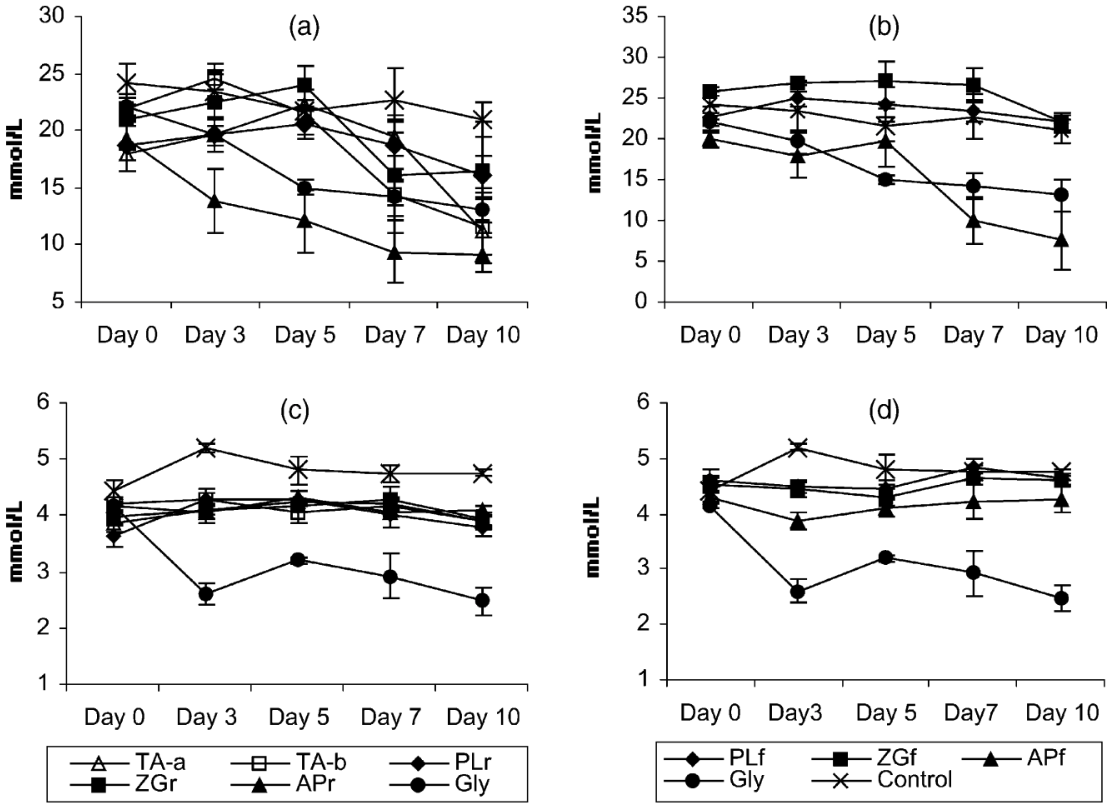
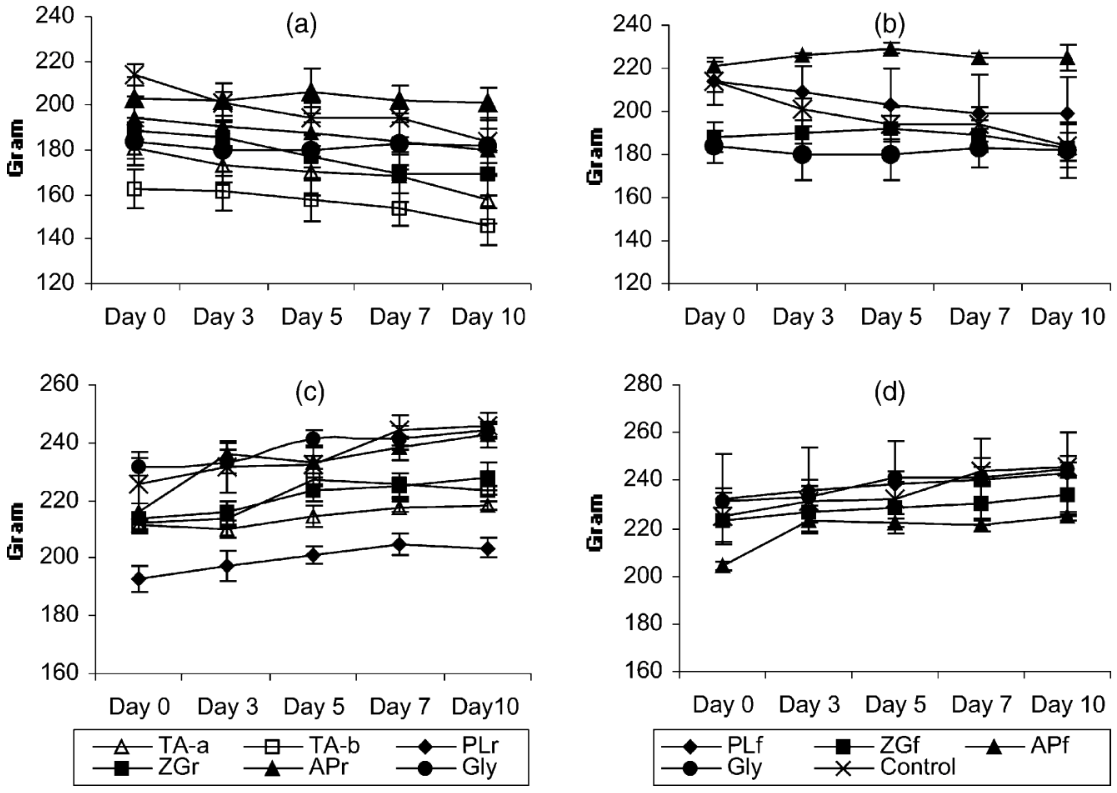
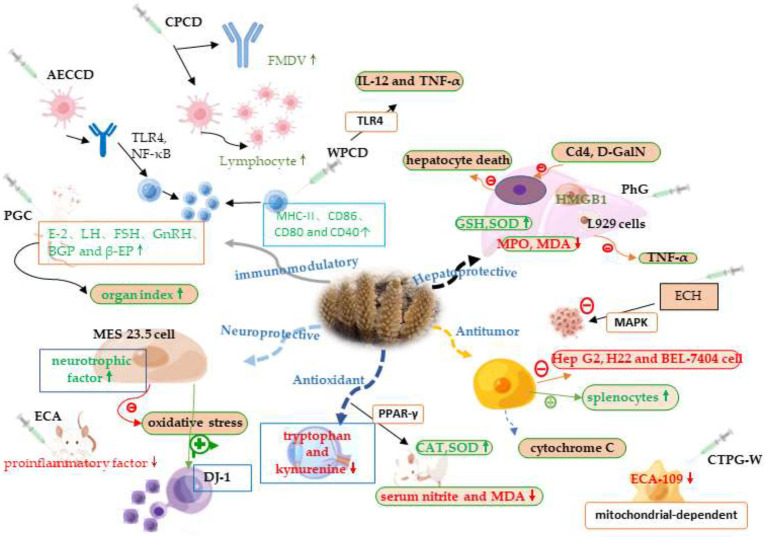
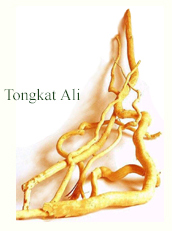
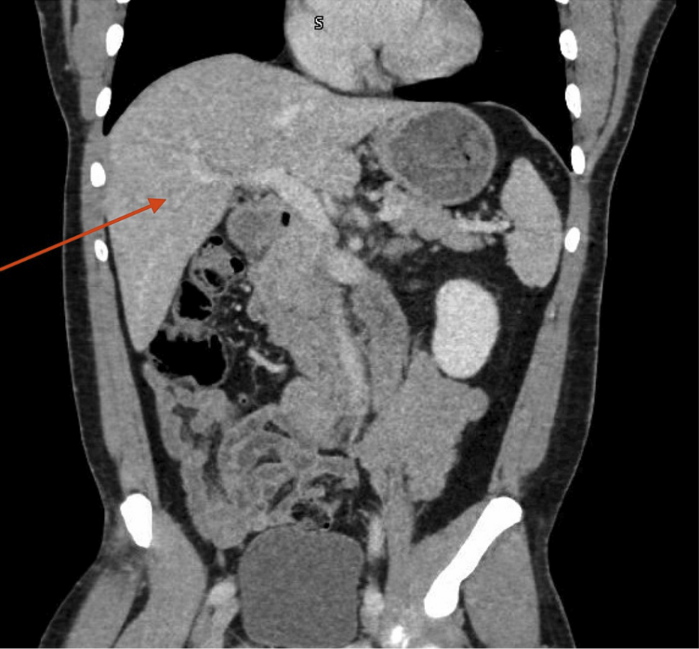
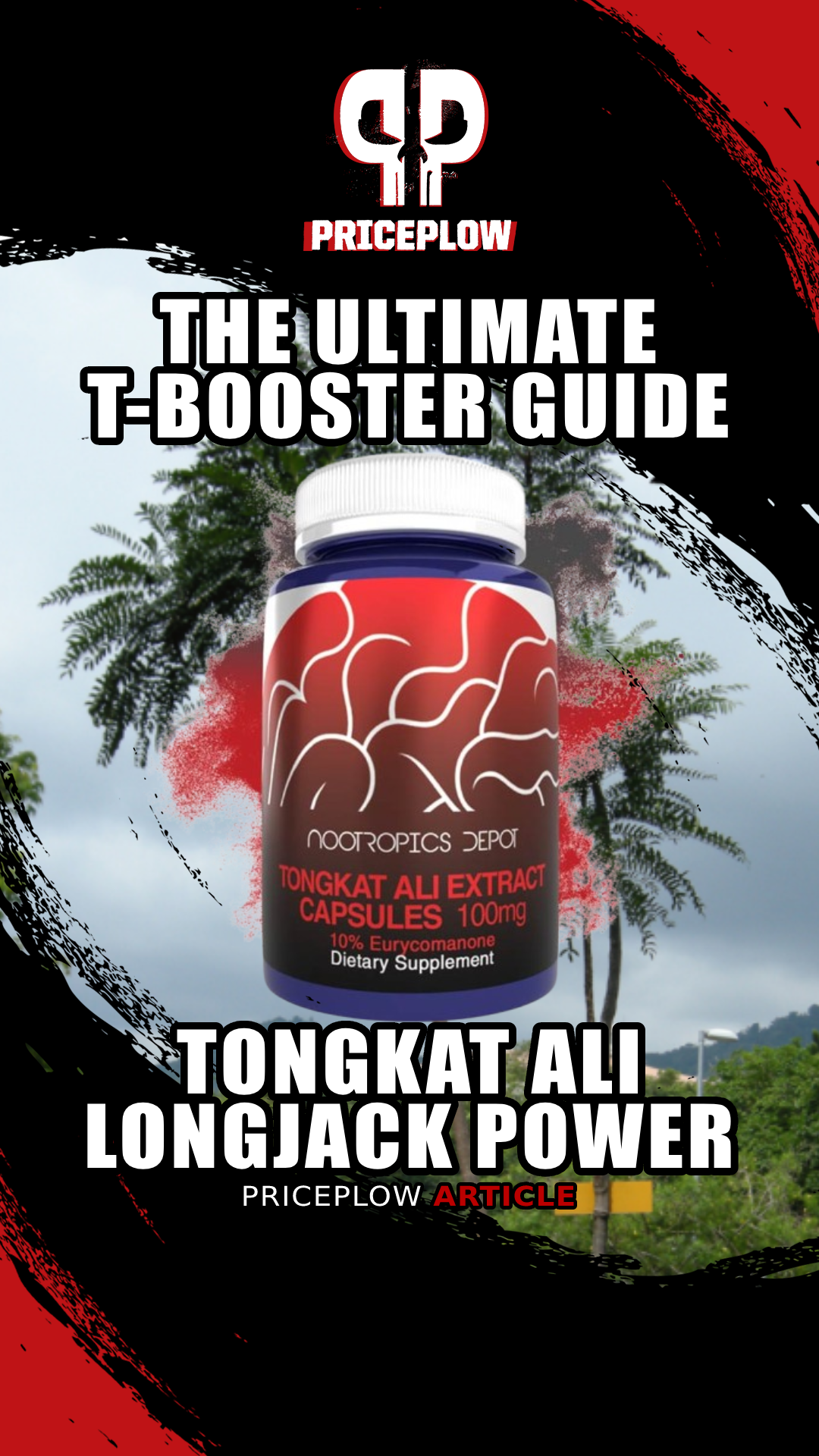



Comments and Discussion (Powered by the PricePlow Forum)